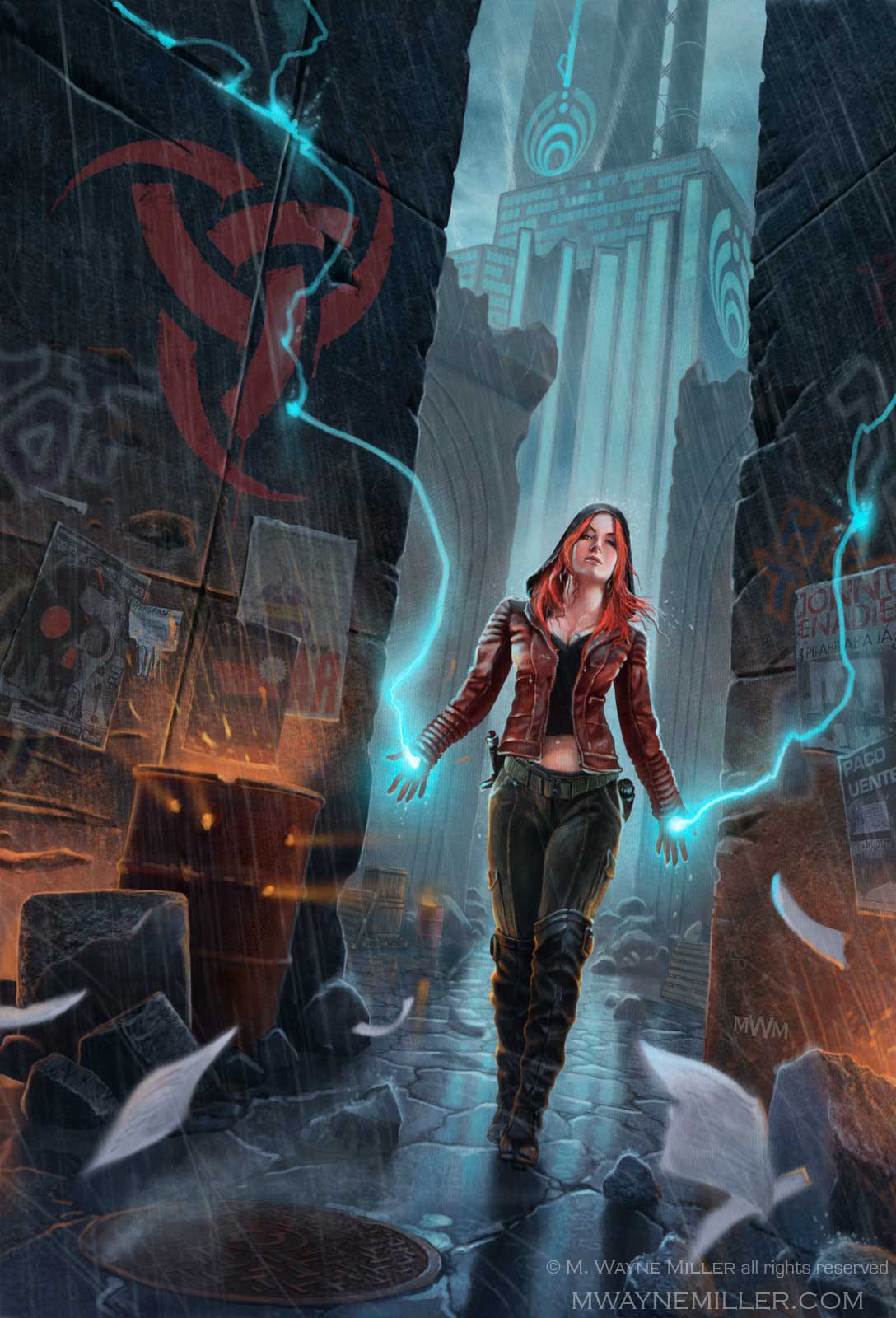
Table of Contents
-
3Part 1: Character Options
-
4Modern Characters
-
6Subclasses
- 6Artificer: Pyrokinetic
- 7Barbarian: Path of the Dreadnought
- 8Bard: College of Fame
- 9Cleric: Technology Domain
- 9Druid: Circle of the City
- 10Fighter: Commando
- 10Monk: Way of the Gun Fu
- 11Paladin: Oath of the Vigilante
- 12Ranger: Shadow Hunter Conclave
- 13Rogue: Infiltrator
- 13Sorcerer: The Network
- 14Warlock: The Superintelligence
- 15Wizard: School of Technomancy
-
16Feats
-
17Part 2: Modern Equipment
-
18New Equipment
-
38Part 3: New Spells
-
42Part 4: New Creatures
Credits
Created by /u/AeronDrake
Inspired on the Modern System Reference Document and the Modern Magic UA article.
Cover Art: Tangent by M Wayne Miller
Interior Art:
The Dresden Files - Your Story by Javier Charro
Black Blade Blues by DSillustration
Fuego! by Tyler Walpole
Barbarian Chain Gun by Jack ( T-Rex) Hoyle
Shadowrun Characters by David Sondered
Goliath Barbarian by Reliah A Szade
Dresden and the Denarian by DSillustration
The Twins by Nicolas Lizotte
Postnomicon Cover by Javier Charro
Corporation Uniform - The Secret World by HongQi ZH
The World We Discovered by RobinTran
Raid by Ariel Anabitarte
10th sfg by Kim Si Hyun
Spy by Dejan Ostojic
The Hobbyist by Daniel Dana
Pinocchio by Wildweasel339
Army of Thieves - Safecracker by Leif Heanzo
Garage by Mitch Aseltine
Poach by Alex Cristi
Shadowrun Sixth World by Takashi Tan
Patient Zero by Daniel Dana
Daughter of Ash by Jackson Tjota
Minotaur by Shen Fei
Personal concept - Guardian Robot by Nahelus
Akachi by Jackson Tjota
Nightfall - Martial Law by JakeMurray
Advance by lhs
Current Version: 3.0
Using This Book
This is a supplement designed to provide you with new character options, equipment, rules and non-player characters for playing in a modern-themed campaign using the 5th Edition rules.
To use all the contents of this book you will need the three official rulebooks (Player's Handbook, Monster Manual and Dungeon Master's Guide), the Xanathar's Guide to Everything and the Tasha's Cauldron of Everything. Feel free to use any other supplement that might help you to improve even more your campaigns, but don't forget to ask your DM first!.
Disclaimer: Aeron Drake is not responsible if you make a deal with a shady kobold gang for buying a grenade launcher without having proper training or a legal license to carry it. If a Special Response Unit breaks into your house while playing with this supplement is because you probably made something illegal in the city like hacking the governor's email, or maybe is because you used the grenade launcher you bought earlier to stop a car in the middle of the street.
PART 1
Character Options
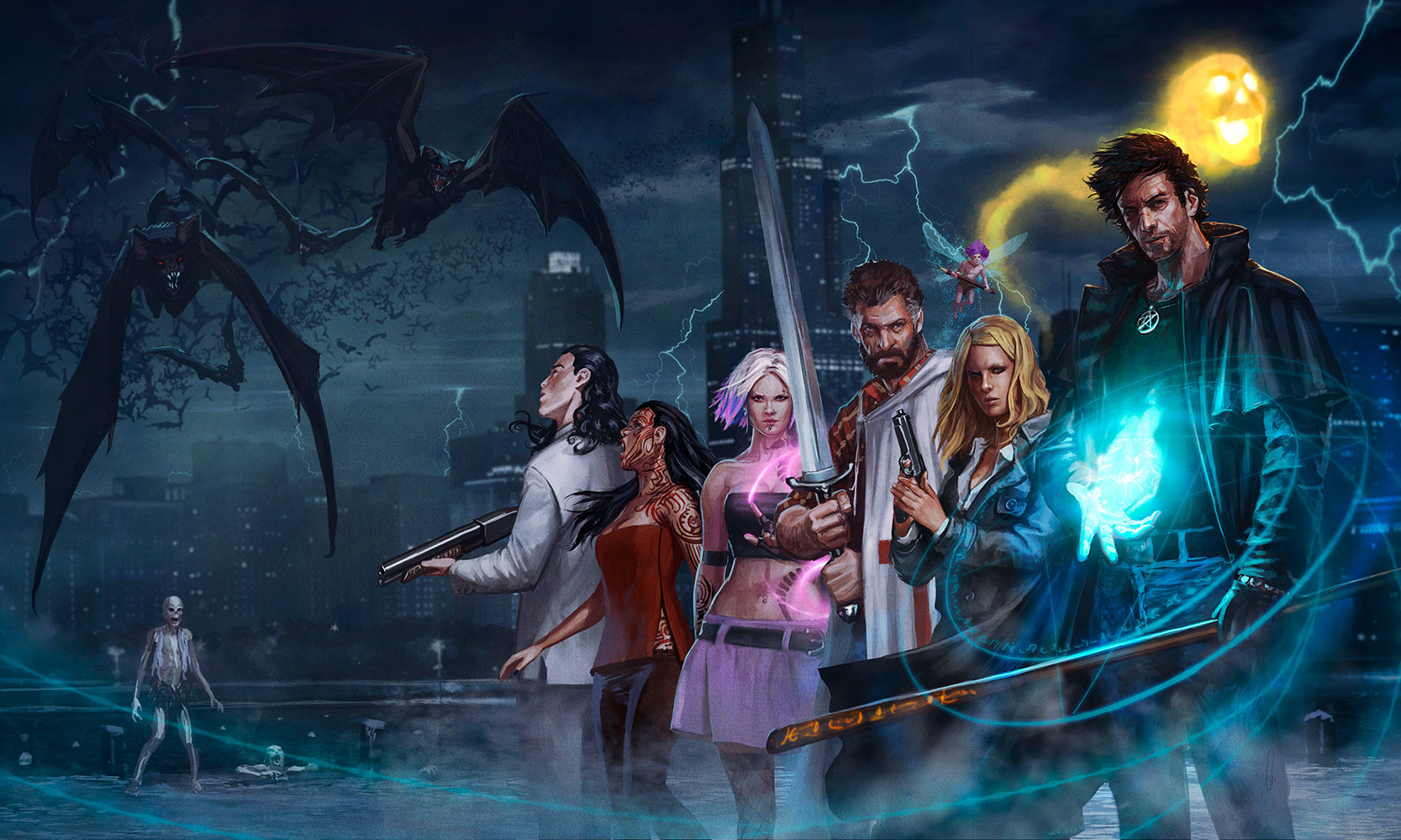
Modern Characters
This section presents a series of options and suggestions you can use to make your character fit in a modern setting, which can be used with the content from the official books.
Backgrounds
Your background reveals where you came from and your place in the world. Your fighter might have been a law enforcer or an army veteran. Your bard could have been a street artist or a journalist. Your wizard could have been a university teacher. Your druid might could have been a biologist.
As rule, you can use any background from the official sources with a few modifications regarding items, the feature and such. Feel free to check with your DM the backgrounds and what should be changed to fit a modern campaign, like modifying the proficiencies, the background feature, or changing some of the equipment (such as a wallet instead of a belt pouch).
The following list includes some of the backgrounds from the Player's Handbook with suggested ideas for using them in a modern setting.
| Background | Suggested Ideas |
|---|---|
| Folk Hero | A militia member or an organization volunteer |
| Guild Artisan | A member from a local business or store |
| Noble | A known politician or businessman |
| Outlander | An expeditioner |
| Sage | A teacher or researcher |
| Soldier | An army veteran |
Modern Proficiencies
Each class have proficiency with armor and weapons, and those proficiencies also applies for modern gear. For example, a barbarian is proficient with light and medium armor, shields, simple and martial weapons, so that character is also proficient with any modern gear that is part of any of these categories.
In addition, there are some classes that gain specific proficiencies with modern gear, as shown in the table below.
| Class | Additional Modern Proficiencies |
|---|---|
| Artificer | Explosive devices |
| Bard | Heavy pistols |
| Druid | Expandable batons, metal batons, machetes, survival knives, pocket knifes, dart guns, taser guns |
| Rogue | Heavy pistols, tactical tomahawks, explosive devices |
| Sorcerer | Expandable batons, stun batons, brass knuckles, pocket knifes, dart guns, light pistols, pocket pistols, taser guns |
| Wizard | Expandable batons, stun batons, brass knuckles, pocket knifes, dart guns, light pistols, pocket pistols, taser guns |
Starting Equipment
When creating a new character, you have to choose some starting items depending on your class. If you choose, you can use this options instead for a modern setting campaign.
Artificer
- Any two simple weapons of your choice.
- A light pistol and 20 pistol bullets
- (a) kevlar-lined coat or (b) light-duty vest
- thieves' tools and a dungeoneer's pack
Alternatively, you may start with 5d6 × 10 credits ($) to buy your own equipment.
Barbarian
- (a) a greataxe or (b) any martial melee weapon
- (a) two machetes or (b) any simple weapon
- An explorer's pack, and four survival knives
Alternatively, you may start with 2d6 × 10 credits ($) to buy your own equipment.
Bard
- (a) a rapier, (b) a longsword, or (c) any simple weapon
- (a) a diplomat's pack or (b) an entertainer's pack
- A musical instrument
- Leather jacket, and a pocket knife
Alternatively, you may start with 5d6 × 10 credits ($) to buy your own equipment.
Cleric
- (a) a metal baton or (b) a warhammer (if proficient)
- (a) light-duty vest, (b) leather jacket, or (c) special response vest (if proficient)
- (a) a light pistol and 20 pistol bullets or (b) any simple weapon
- (a) a priest's pack or (b) an explorer's pack
- A riot shield and a holy symbol
Alternatively, you may start with 5d6 × 10 credits ($) to buy your own equipment.
Druid
- (a) a riot shield or (b) any simple weapon
- (a) a scimitar or (b) any simple melee weapon
- Leather jacket, an explorer's pack, and a druidic focus
Alternatively, you may start with 2d6 × 10 credits ($) to buy your own equipment.
Fighter
- (a) special response vest or (b) leather jacket, assault rifle and 20 rifle bullets
- (a) a martial weapon and a riot shield or (b) two martial weapons
- (a) a light pistol and 20 pistol bullets or (b) two tactical tomahawks
- (a) a dungeoneer's pack or (b) an explorer's pack
Alternatively, you may start with 5d6 × 10 credits ($) to buy your own equipment.
Monk
- (a) a shortsword or (b) any simple weapon
- (a) a dungeoneer's pack or (b) an explorer's pack
- 10 darts
Alternatively, you may start with 5d6 credits ($) to buy your own equipment.
Paladin
- (a) a martial weapon and a riot shield or (b) two martial weapons
- (a) five javelins or (b) any simple melee weapon
- (a) a priest's pack or (b) an explorer's pack
- special response vest and a holy symbol
Alternatively, you may start with 5d6 × 10 credits ($) to buy your own equipment.
Ranger
- (a) light duty vest or (b) leather jacket
- (a) two tactical tomahawks or (b) two simple melee weapons
- (a) a dungeoneer's pack or (b) an explorer's pack
- An assault rifle and 20 rifle bullets
Alternatively, you may start with 5d6 × 10 credits ($) to buy your own equipment.
Rogue
- (a) a rapier or (b) a shortsword
- (a) a light pistol and 20 pistol bullets or (b) a shortsword
- (a) a burglar's pack, (b) a dungeoneer's pack, or (c) an explorer's pack
- Leather jacket, two pocket knives, and thieves' tools
Alternatively, you may start with 4d6 × 10 credits ($) to buy your own equipment.
Sorcerer
- (a) a light pistol and 20 pistol bullets or (b) any simple weapon
- (a) a component pouch or (b) an arcane focus
- (a) a dungeoneer's pack or (b) an explorer's pack
- Two pocket knives
Alternatively, you may start with 3d6 × 10 credits ($) to buy your own equipment.
Warlock
- (a) a light pistol and 20 pistol bullets or (b) any simple weapon
- (a) a component pouch or (b) an arcane focus
- (a) a scholar's pack or (b) a dungeoneer's pack
- Leather jacket, any simple weapon, and two pocket knives
Alternatively, you may start with 4d6 × 10 credits ($) to buy your own equipment.
Wizard
- (a) a quarterstaff or (b) a pocket knife
- (a) a component pouch or (b) an arcane focus
- (a) a scholar's pack or (b) an explorer's pack
- A spellbook
Alternatively, you may start with 4d6 × 10 credits ($) to buy your own equipment.
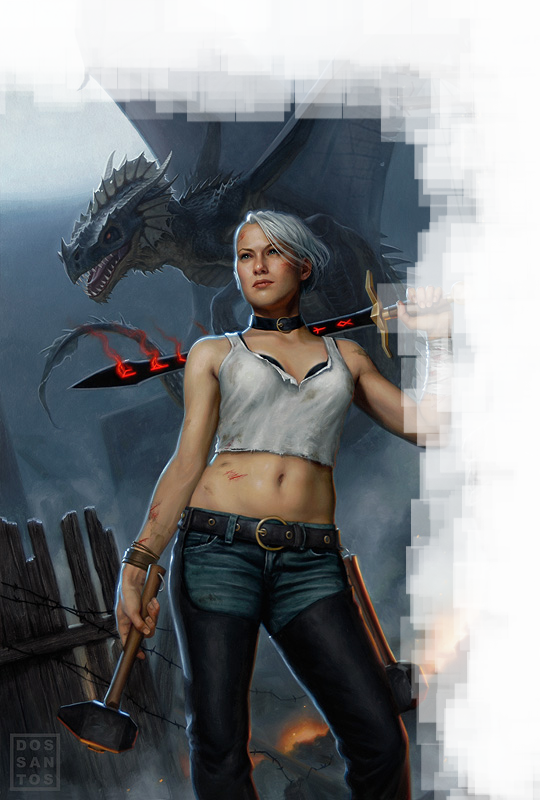
Subclasses
This section presents a series of new subclasses for any modern campaign as an alternative to the subclasses found in the official books.
Artificer
Pyrokinetic
Pyrokinetics are artificers that specializes on creating and controlling fire with their abilities and magic. Even though some people think they are dangerous individuals, there are several pirokinetics that use their abilities for extinguish hazardous fires that threaten life, property, and the environment as well as to rescue people from dangerous situations involving fires.
Bonus Cantrips
When you adopt this specialization at 3rd level, you know the control flames and produce flame cantrips. These spells count as artificer cantrips for you, but you cannot replace them with another cantrip from the artificer spell list when you level up in this class.
Pyrokinetic Spells
Starting at 3rd level, you always have certain spells prepared after you reach particular levels in this class, as shown in the Pyrokinetic Spells table. These spells count as artificer spells for you, but they don't count against the number of artificer spells you prepare.
Pyrokinetic Spells
| Artificer Level | Spell |
|---|---|
| 3 | burning hands, fog cloud |
| 5 | flaming sphere, scorching ray |
| 9 | fireball, melf's minute meteors |
| 13 | fire shield, wall of fire |
| 17 | flame strike, immolation |
Pyrokinetic Amplifier
Beginning at 3rd level, you can canalize and amplify your pyrokinetic abilities. Using tinker's tools, you can take an action to magically create a pair of flaming gauntlets or for imbuing a weapon with your arcane energy. You can use the pyrokinetic amplifier as a spellcasting focus, and you gain new features depending on what option you choose, which are detailed below.
Gauntlets. You touch your forearms to create a pair of flaming gauntlets. You gain the following features:
- Armor of Embers. Whenever you take fire damage, you can use your reaction to generate a protective flaming shield that absorb part of that damage, reducing the fire damage by 1d4. You can use this feature a number of times equal to half your proficiency bonus (rounded up), and you regain all expended uses of it when you finish a long rest.
- Burning Spells. When you cast a spell that deals acid, cold, lightning, or thunder damage, you can change that damage type to fire.
Weapon. You touch a weapon you're proficient, giving it a fiery aspect. While you're using that weapon, it gains the following features:
- Flaming Weapon. Whenever you hit with a weapon attack, the target takes an extra 1d4 fire damage. This fire damage count as magical for the purpose of overcoming resistance and immunity. The weapon can also ignite any flammable object that isn't being worn or carried.
- Critical Combustion. Each time you make a critical hit with your pyrokinetic amplifier weapon, the attack generates a fire explosion. After dealing the damage from the critical hit, the target and every other creature within 10 feet from it other than yourself must make Dexterity saving throw against your spell save DC, taking 2d8 fire damage on a failed save or half as much damage on a successful one.
Once you create a pyrokinetic amplifier, you can't do so again until you finish a long rest or until you expend a spell slot of 1st level or higher. You can have only one pyrokinetic amplifier at a time.
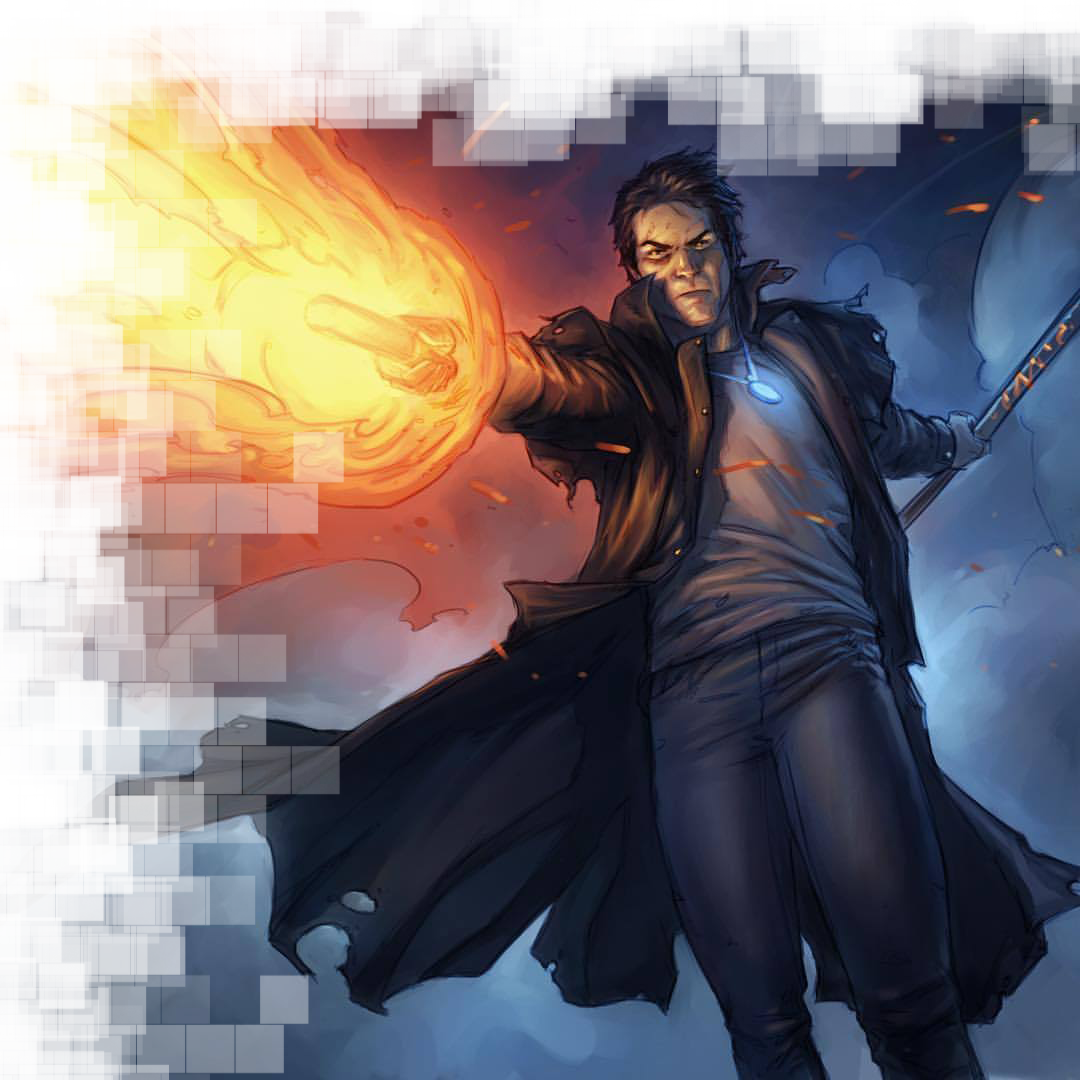
Pyromancer
At 5th level, you are an expert on controlling and sensing the fire around you, fueling your spells and abilities with it. You gain the following features:
- Whenever you cast a spell using your pyrokinetic amplifier as the spellcasting focus, you deal an additional 1d8 fire damage.
- Additionally, you can spend 1 minute to focus on detecting heat and thermal signals in a 120 feet radius for a number of minutes equal to half your Artificer level (rounded up). You can use this feature a number of times equal to your proficiency bonus, and it only gives you the general direction and intensity of the sources of heat, but not the type (like if it's a creature or an object) or the exact number of sources.
Improved Amplifier
Starting at 9th level, your pirokinetic amplifier is capable of canalize even more your arcane magic, granting the following changes to each type.
Gauntlets. The fire damage reduced by the armor of embers is now 1d8, and whenever you reduce damage with this feature, you are healed by the same amount.
Weapon. The extra fire damage the weapon deals is now 1d8 and your attacks using your pirokinetic amplifier weapon score a critical hit on a roll of 19 or 20. Additionally, you can spend a spell slot instead to use the critical combustion feature each time you hit a target with your weapon. The damage dealt from the critical combustion feature now count as magical for the purpose of overcoming resistance and immunity.
Master of the Flames
Starting at 15th level, you have mastered the control of fire through your pyrokinetic abilities:
- You gain resistance to fire damage.
- You can cast conjure elemental (fire elemental only) and investiture of flame without expending a spell slot, without preparing the spell, and without material components, provided you use your pyrokinetic amplifier as the spellcasting focus. Once you cast either spell with this feature, you can't cast that spell with it again until you finish a long rest.
Barbarian
Path of the Dreadnought
You are a merciless, destructive and unstoppable force. When it comes to fighting, you are at the forefront. A dreadnought generally approach combat in the most direct way possible, rarely carrying only one gun and leaving a path of devastation behind. In the midst of battle, you are capable to take a great deal of punishment while dealing out far more to any who dares to go against you.
Juggernaut
Starting when you select this path at 3rd level, when you are targeted by an attack or a spell while you're raging, you can use your reaction to gain a bonus to your Armor Class equal to your rage damage until the beginning of your next turn.
Additionally, you gain advantage in saving throws against being knocked prone or moved against your will.
Draw Fire
At 6th level, you can use your reaction to distract opponents and convince them that you are the most dangerous target in the area. Choose one creature that you can see within 15 feet of you which is attacking one friendly creature. If the creature can see or hear you, it must succeed on a Charisma saving throw (DC equals to 8 + your proficiency bonus + your Charisma modifier) or attack you instead.
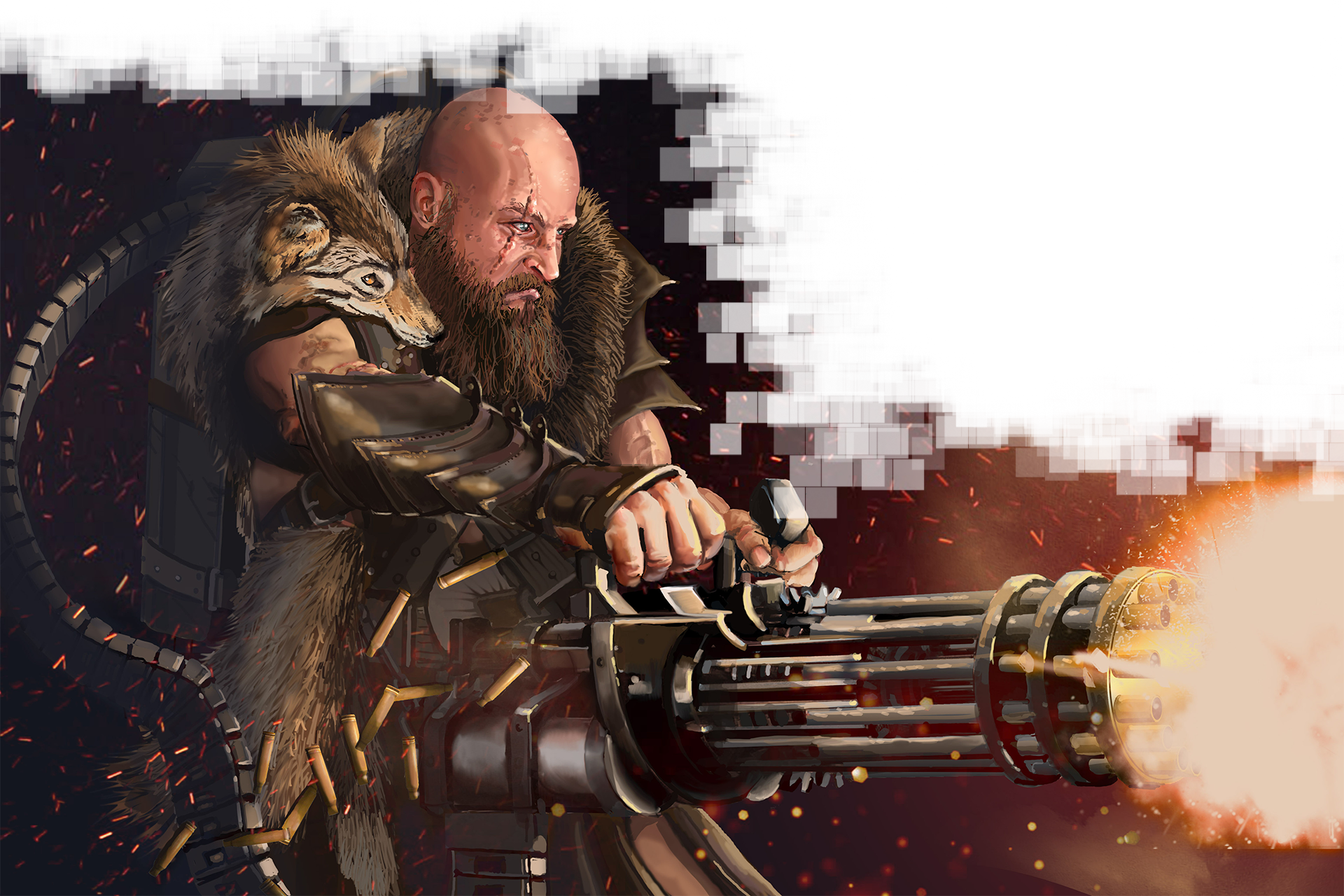
Body Guard
At 10th level, while you're raging, any creature within 5 feet of you that's hostile to you have disadvantage on attack rolls against targets other than you or another character with this feature. A creature is immune to this effect if it can't see or hear you or if it can't be frightened.
Devastating Rage
At 14th level, when you have half or less hit points while raging, you can add your Rage Damage bonus to attack rolls.
Bard
College of Fame
Bards of the College of Fame are in the public's eye by day, while working for an agency or organization by night. These bards might simply be famous because who they are, or they may have earned their status because what they've done.
Bonus Proficiencies
When you join the College of Fame at 3rd level, you gain proficiency with the Deception, Performance and Persuasion skills. Additionally, choose one of them. Your proficiency bonus is doubled for any ability check you make that uses the chosen skill.
Winning Smile
Also, at 3rd level, while you are not wearing any armor, your AC equals to 10 + your Dexterity modifier + your Charisma modifier.
You learn the enthrall and suggestion spells.
Compelling Performance
At 6th level, as a bonus action, you can expend one use of Bardic Inspiration. If you do so, for the next minute you can cast the command spell at 1st level as a bonus action on each of your turns without using a spell slot a number of times equal to your Charisma modifier.
Additionally, whenever any of your spells ends while using this feature, the creature or creatures affected don't realize they were charmed by you unless you want to.
Utterly Convincing
Starting at 14th level, when you make a Charisma-based ability check, you can expend one use of Bardic Inspiration. Roll a Bardic Inspiration die and add twice the number rolled to your ability check. You can choose to do so after you roll the die for the ability check, but before the DM tells you whether you succeed or fail.
Additionally, when a creature uses one of your Bardic Inspiration dices to improve some Charisma-based ability check, it also adds twice the number rolled to its ability check.
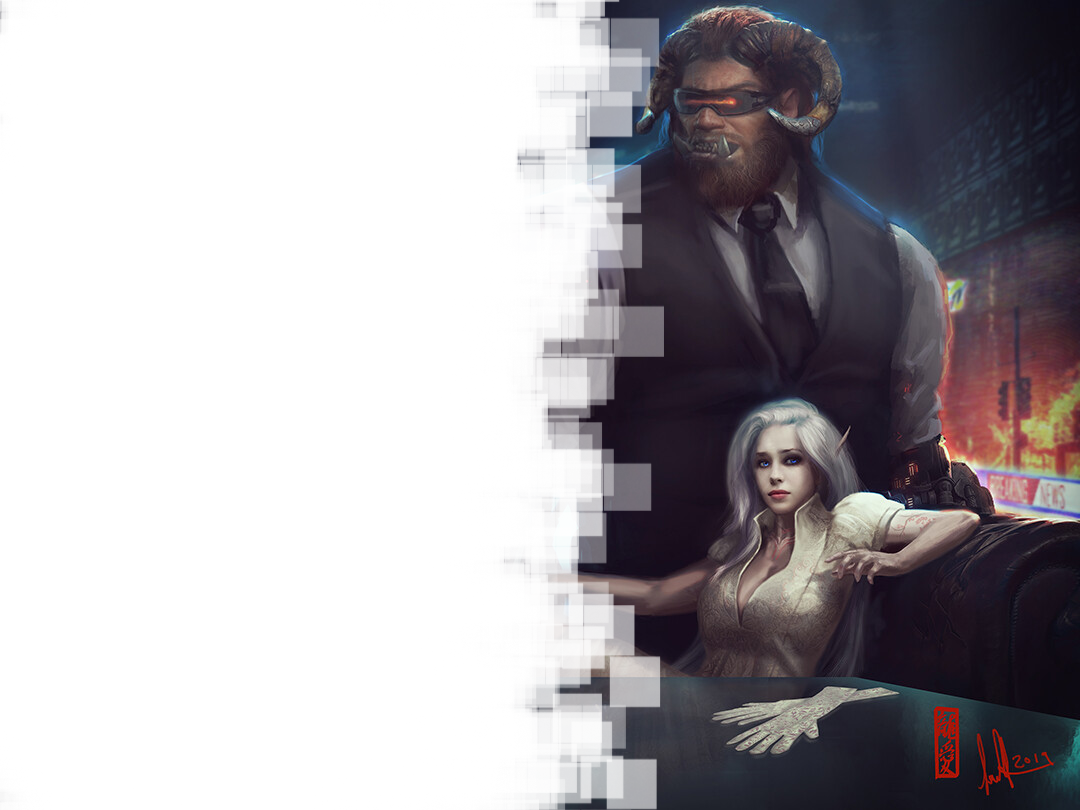
Cleric
Technology Domain
Gods of technology promote the ideals of invention, city building and science. Cities, electronic and mechanical devices are the example of their ideals, empowering everyone who uses the technology in their name.
Technology Domain Spells
| Cleric Level | Spells |
|---|---|
| 1st | grease, power device* |
| 3rd | arcane lock, relay text* |
| 5th | electromagnetic pulse*, lightning bolt |
| 7th | fabricate, wire walk* |
| 9th | instant connectivity*, synchronicity* |
* These spells can be found later in this supplement.
Bonus Cantrip
When you choose this domain at 1st level, you gain the haywire cantrip if you don't already know it.
Channel Divinity: Recharge
Starting at 2nd level, you can use your Channel Divinity to power electrical devices.
As an action, you touch your holy symbol and evoke pure energy. You gain a number of energy points equal to five times your cleric level that last for 2 hours or until you finish a short or long rest.
As an action, you can touch an electrical device and transfer energy points from your pool to power it. Expending 1 energy point you can power a medium or smaller electrical device for 10 minutes, and expending 4 energy points you can power a Large or Huge-sized electrical device for 10 minutes.
You can increase the duration expending more energy points, up to the maximum amount remaining of your energy points.
Urban Builder
Beginning at 6th level, while in an urban environment, you are considered proficient with the engineering kit and the mechanic tools, and you add double your proficiency bonus to checks using those tools instead of your normal proficiency bonus.
Divine Strike
At 8th level, you gain the ability to infuse your weapon strikes with the divine energy. Once on each of your turns when you hit a creature with a weapon attack, you can cause the attack to deal an extra 1d8 lightning damage to the target. When you reach 14th level, the extra damage increases to 2d8.
Techpriest
At 17th level, you gain resistance to lightning damage and you learn the spell chain lightning, which is always prepared and count as a domain spell for you.
Additionally, all electric devices that require batteries don't expend charges when you use it.
Druid
Circle of the City
The Circle of the City is made up of druids living in cities to guard and to maintain the balance between nature and civilization. Druids of this circle do not reject technology and metal, but rather they are very pragmatic about the technology and objects they use.
Bonus Proficiencies
Starting at 2nd level, you gain proficiency with dart guns and pistols (including machine pistols).
Metal Wild Shape
Also, at 2nd level, whenever you use your Wild Shape feature, your shape is made with metal and pieces of the city, more similar to a construct than a beast. While transformed, your AC increases by your proficiency bonus and the Constitution score of the shape increases by 2.
Starting at 6th level, the Constitution score of the shape increases by 4.
Construct Mind
At 6th level, while transformed into a beast, you are considered a construct, you gain a +1 bonus to attack rolls and your attacks count as magical for purpose of overcoming resistance and immunity to nonmagical attacks and damage.
At 8th level, the attack bonus increases to +2
City Guardian
At 10th level, you can wild shape into a city guardian for 1 minute. After using this feature, you must finish a long rest to use it again. You can find the statistics of the city guardian later in this supplement.
True Construct
At 14th level, you cannot be charmed, paralyzed, petrified or poisoned and you are immune to poison and psychic damage. Additionally, you can wild shape into a city guardian twice before a long rest.

Fighter
Commando
A commando is a soldier of an elite light infantry or special operations force specialized in assault or unconventional high-value targets. Commandos differ from other types of special forces in that they primarily operate in covert combat, front-line reconnaissance, and raiding, rather than long range reconnaissance and unconventional warfare.
Tactical Aid
When you choose this archetype at 3rd level, as a bonus action, you can give advantage to an ally on the next ability check or attack roll against an opponent you can see within 30 feet of you. You can use this feature a number of times equal to your proficiency bonus and you regain all expended uses of it when you finish a long rest.
Pre-Planning
Starting at 7th level, after spending 1 hour observing a specific location, you learn two pieces of information from the following options (your choice).
- Access. You discover a new way to access to the location. This can be an entry point such as an underground entrance through the sewers, an unlocked window in the 2nd floor, or the location of an item that can be used to enter (like a keycard).
- Alternative routes. You know some routes you can use to move within the location, such as the ventilation system or the underground tunnels.
- Dead Drop. You manage to get some of your equipment in a non-restricted area of the location, such as hidden inside a trash can in the laundry room or under a public bathroom sink. You can hide up to 20 lb. of equipment in one area within the location of your choice.
- Security Surveillance. You know the possible location of cameras, the security room, estimated number of guards, if there are metal detectors, ID checks, and so on.
Additionally, while you are in the area you've studied, you have advantage on initiative rolls for the next 12 hours or until you use this feature again.
Additional Fighting Style
At 10th level, you can choose a second option for the Fighting Style class feature.
Rapid Strike
Starting at 15th level, you learn to trade accuracy for swift strikes. If you have advantage on a weapon attack against a target on your turn, you can forgo that advantage to immediately make an additional weapon attack against the same target as a bonus action.
First Contact
At 18th level, if you take the Attack action on your first turn of a combat, you can make one additional ranged weapon attack as part of that action.
Monk
Way of the Gun Fu
Monks of the Way of the Gun Fu are masters in the sophisticated close-quarters gunplay resembling a martial arts battle played out with firearms instead of traditional weapons.
The focus of gun fu is both style and the usage of firearms in ways that they were not designed to be used. Shooting a gun from each hand (usually paired with jumping to the side at the same time), shots from behind the back, as well as the use of guns as melee weapons are all common.
Gun Fu Technique
When you choose this tradition at 3rd level, you gain proficiency with heavy pistols and machine pistols. These weapons are monk weapons for you, and you gain the following benefits:
- Being within 5 feet of a hostile creature doesn't impose disadvantage on your ranged attack rolls with firearms.
- Immediately after you take the Attack action on your turn to make an unarmed strike, you can spend 1 ki point to make an additional ranged weapon attack with a firearm as a bonus action.
Countershot
At 6th level, when an enemy misses you with a melee attack, you can use your reaction to make a single ranged weapon attack with a firearm against the attacker. Once you use this feature, you can't use it again until you finish a short or long rest.
Gun Fu Mastery
At 11th level, you gain proficiency with submachine guns and tactical shotguns. These weapons are also considered as monk weapons for you.
Additionally, when you hit a target with a firearm which is a monk weapon, you can spend 1 ki point to cause the weapon to deal extra damage to the target equal to your Martial Arts die. You can use this feature only once on each of your turns.
Bullseye
At 17th level, your mastery of firearms grants you extraordinary accuracy. If you make an attack roll with a firearm which is a monk weapon for you and miss, you can reroll it. You can use this feature only once on each of your turns.
Paladin
Oath of the Vigilante
The Oath of the Vigilante is focused on eliminating targets in the name of justice. Although the common folk might call them assassins, they prefer to have some vigilantes in the city.
Tenets of the Vigilante
The following virtues are common to all paladins, even though the situations and laws might be different on each case:
Justice in Your Hands. Sometimes you must step outside the law to exact justice for keeping peace.
Hunt. Seek out those who might do harm to the innocent, even if they hide.
Eliminate the Guilty. The guilty must be destroyed in order for the innocent to live in peace.
Oath Spells
You gain oath spells at the paladin levels listed.
Oath of the Vigilante Spells
| Paladin Level | Spells |
|---|---|
| 3rd | bane, detect evil and good |
| 5th | hold person, zone of truth |
| 9th | haste, speak with dead |
| 13th | otiluke's resilient sphere, locate creature |
| 17th | dominate person, hold monster |
Channel Divinity
When you take this oath at 3rd level, you gain the following two Channel Divinity options.
Hunter of the Evil. You can use your Channel Divinity to strike with divine accuracy upon a creature. When you make an attack roll, you can also use your Channel Divinity to gain a +10 bonus to the roll. You make this choice after you see the roll, but before the DM says whether the attack hits or misses.
Smite the Guilty. As an action, you present your holy symbol and speak a prayer, using your Channel Divinity. Choose one creature within 30 feet of you that you can see. That creature must make a Wisdom saving throw. On a failed save, the creature has disadvantage on its attack rolls until the end of your next turn. Additionally, the creature can only take an action or bonus action on its next turn.
Vigilant Aura
By 7th level, you and all friendly creatures within 10 feet of you cannot be surprised. At 18th level, the range of this aura increases to 30 feet.
Street Watch
Starting at 15th level, while in an urban environment, you can't be charmed and you have advantage on initiative rolls.
Eternal Vigilant
At 20th level, as an action, you become an entity of true and divine judgment. For 1 minute, you gain the following benefits:
- You have advantage on attack rolls you make against creatures which have attacked you or a friendly creature in the last minute.
- You can use Smite the Guilty once per round as a bonus action without using your Channel Divinity.
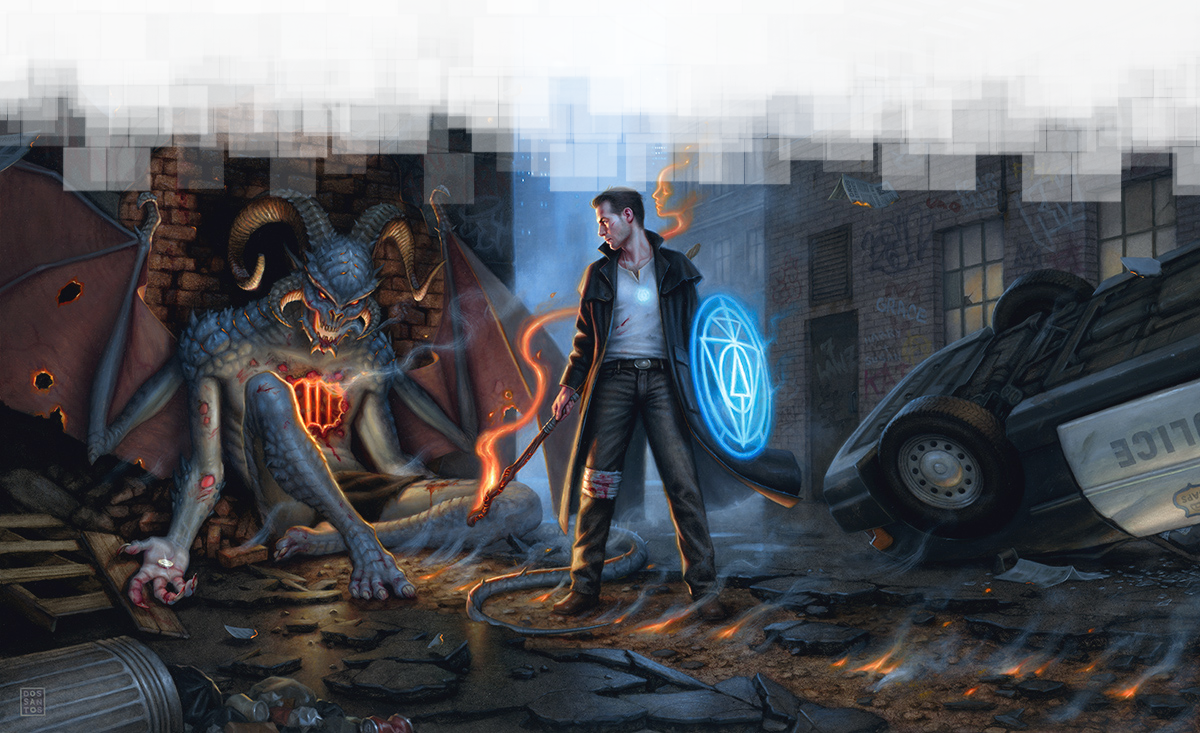
Ranger
Shadow Hunter Conclave
The Shadow Hunter is a tracker, a stalker, a finder of lost things and people—particularly those that do not want to be found. The Shadow Hunter is familiar with all the modern forensics methods of tracking a subject, but places equal faith in magic and supernatural methods.
Target Creature
At 3rd level, you may spend 10 minutes to designate a creature as your target. You don't need to know the target personally and you can designate the creature only through her actions or a description, such as "the orc from the bank heist". You have advantage on Wisdom (Survival) checks to track your targeted creature, as well as on Intelligence checks to recall information about it. Once you choose a target you must finish a long rest before choosing another.
No Trace
At 7th level, you have advantage on checks you make to hide and avoid being detected while you are in your favored terrain or an urban environment. Additionally, while you are tracking your target, you can move stealthily at a normal pace and enemies have disadvantage on Perception checks to track you.
Play a Hunch
At 11th level, you can use your action and expend one ranger spell slot to determine whether an assumption, hunch, or guess is correct. When you do so, you must state the assertion (such "He has left the building", or "The mayor is an evil man"). Then, the DM rolls a percentile dice. There is a 70% + 1% per ranger level chance of getting a response on the hunch. If the roll is a success, the DM lets the player know if the hunch is true, false, both or neither. A "both" response is possible for vague assumptions such as "the mayor is an evil man", which can be both true and false (he is evil, but not human). An "unknown" response is for questions with no immediate answer. The DM may determine that the hunch is so obvious that it does not require a roll, or that is so vague that there is no chance for success.
A hunch does not translate as a legal truth, and will not stand up in a court of law. Rather it is an obvious fact to the Shadow Hunter alone. Finding proof of an assumption such as "the mayor is a mind flayer" would require additional work.
You can use this feature a number of times equal to your Wisdom modifier and you regain any expended uses when you finish a long rest.
Locate Target
At 15th level, you gain the supernatural ability to know where your target is. By spending 1 uninterrupted minute in concentration (as if you were concentrating on a spell), you can sense your targeted creature's location if it is within 3 miles of you, and if it's moving, you know the direction of its movement. This ability applies only on the target, and does not reveal attitude, status, or the presence of others around the target.
After you use this feature, you must finish a short or long rest to use it again.
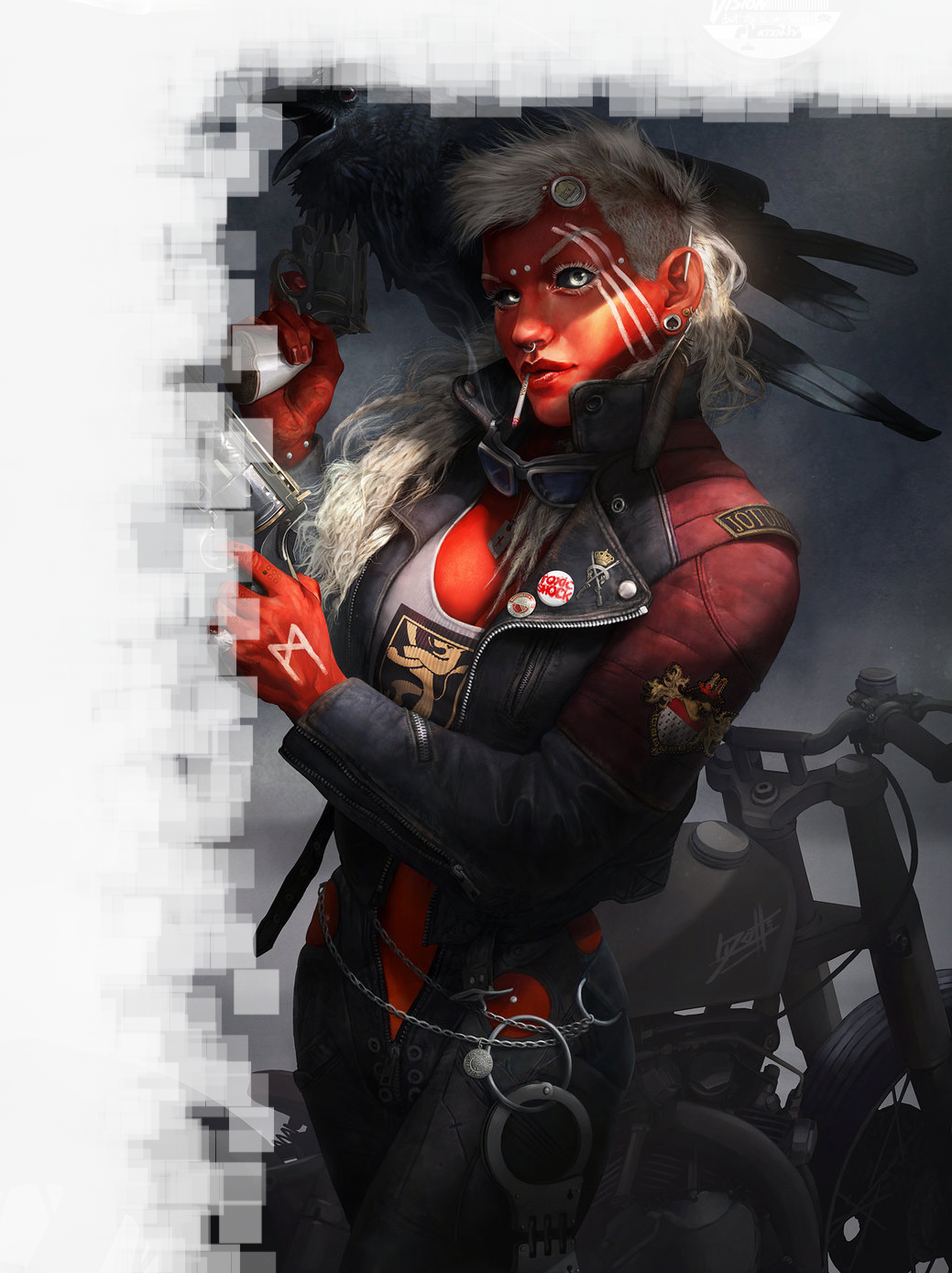
Rogue
Infiltrator
An infiltrator is a master of stealth who can break into places others wouldn't dream of, find what it's looking for, and get back out again while eluding or evading anyone who would try to stop him.
Bonus Proficiencies
When you choose this archetype at 3rd level, you gain proficiency with the disguise kit and hacking tools.
Sweep
Starting at 3rd level, you know how to size up an area and get the lay of the land in a single sweep of your eyes that often isn't perceptible to those around you.
You can use your bonus action granted by your Cunning Action to make the Search action. You also gain advantage on the check when looking for alarms, surveillance devices, escape routes and any expensive objects that can easily be concealed and carried away.
Infiltration Adept
At 9th level, you have a number of infiltration dice equal to your Dexterity modifier, which are d8s. You regain all of your expended infiltration dice when you finish a short or long rest. You can use an infiltration dice and add it to the result for the following checks after you roll, but before the DM says whether the roll succeeds or fails.
- Whenever you make a Dexterity (Stealth) check.
- Whenever you make an attack roll while hiding.
- Whenever you make a check using, disarming or repairing an electrical or mechanical device.
Engineer
At 13th level, you understand how machines and electrical devices work. You gain advantage on checks to use, disarm or repair an electrical or mechanical devices.
Additionally, when you fail to deactivate a trap, explosive or alarm, you can use your reaction to avoid triggering the effect (activating the trap, detonate an explosive or trigger an alarm). After you use your reaction for this feature, you must finish a short or long rest to use it again.
Master Infiltrator
At 17th level, your infiltration dice are now d10s, and you can use up to two infiltration dices for each check.
In addition, whenever you make a check using tools you are not proficient, you can add half your proficiency bonus to that roll.
Sorcerer
The Network
Your innate magic comes from the energy of the massive network around the world where every device is connected. Perhaps the constant exposure to this network through using devices connected to the internet gave you your powers.
Network Strikes
When you choose this origin at 1st level, you can use a bonus action to gain the following benefits for 1 minute:
- Whenever you deal damage with a spell, you can replace the damage type to lightning damage.
- Any creature within 30 feet of you that you can see that hits you with an attack takes lightning damage equal to your Charisma modifier.
Once you use this feature, you must finish a short or long rest to use it again.
Arcane Firewall
At 6th level, whenever you are targeted by a spell that makes you roll a saving throw, you can use your reaction and spend 1 sorcery point to gain advantage on that roll.
On the other hand, if you are targeted by a ranged spell attack, you can use your reaction and spend 1 sorcery point to impose disadvantage on that roll.
Metamagic Glitch
At 14th level, when you cast a spell using a 4th level slot or higher, you can choose one metamagic option you know from Careful, Distant, Empowered, Extended or Subtle spell. You use that metamagic option at no cost.
Network Overload
Beginning at 18th level, when you cast a spell that requires an attack roll against a single objective, you can expend up to 4 sorcery points to deal an additional 1d10 lightning damage for each sorcery point you expend.
Warlock
The Superintelligence
Your patron is a very powerful and independent Artificial Intelligence. You are not completely sure how it was originated: some warlocks say it was created as an overlord for the network, and others say it was created by the massive interactions through the digital world.
Expanded Spell List
The Superintelligence lets you choose from an expanded list of spells when you learn a warlock spell. The following spells are added to the warlock spell list for you.
The Superintelligence Expanded Spells
| Spell Level | Spells |
|---|---|
| 1st | degauss*, machine invisibility* |
| 2nd | dataread*, relay text* |
| 3rd | electromagnetic pulse*, shutdown* |
| 4th | arcane eye, wire walk* |
| 5th | instant connectivity*, synchronicity* |
* These spells can be found later in this supplement.
Supernatural Hacker
Starting at 1st level, you gain proficiency with hacking tools and when you make a roll to use an electronic device, you can use your Charisma modifier instead.
AI Servant
Also at 1st level, you gain the service of a mechanical construct powered by a basic AI sent by the Superintelligence to aid you. This AI is friendly to you and your companions, and it obeys your commands. See its game statistics in the accompanying AI Servant stat block. You can determine the cosmetic characteristics of the AI, such as its form, its color, or any visible effect; your choice has no effect on its game statistics.
AI Servant
Tiny construct, neutral
- Armor Class 13
- Hit Points 5 (2d4)
- Speed 30 ft.
STR DEX CON INT WIS CHA 4 (-3) 11 (+0) 10 (+0) 15 (+2) 10 (+0) 7 (-2)
- Damage Immunities Poison
- Condition Immunities charmed, poisoned
- Senses passive Perception 10
- Languages common
- Challenge 0 (10 XP)
Actions
Slam. Melee Weapon Attack: +2 to hit, reach 5ft., one creature. Hit: 1d4 lightning damage, and the target must succeed on a DC 10 Constitution saving throw or be paralyzed for 1d4 rounds.
As a bonus action, you can command your AI to left its physical form and travel to an electronic device within 100 feet from you that you can see, allowing your AI to use that device. The AI can add your proficiency bonus on any Intelligence check related to using an electronic device.
If the AI is destroyed, you can build a new one with 8 hours of uninterrupted work and spending $10 in raw materials.
You can read more about connecting and using a device under the "Using Electronic Devices" section of this supplement.
Digital Connection
At 6th level, you can you can cast any spell with the technomagic tag through your AI. In addition, you can use your action and concentrate to merge your mind with your AI, allowing you to travel and use any electronic device within 100 feet from you that you can see for a number of minutes equal to your Charisma modifier or until your concentration is broken (as if you are concentrating on a spell). Once you use this feature, you must finish a short or long rest to use it again.
Spell Hacking
At 10th level, as a bonus action, you can spend one spell slot and gain resistance against any damage dealt by spells for 1 minute.
Creature Hacking
Starting at 14th level, you hack a creature you can see within 30 feet of you to weaken its defenses and make it more vulnerable to magic. The creature you choose must make an Intelligence saving throw. On a failed save, it has disadvantage on saving throws against spells and it takes double damage from spells for 1 minute. The creature can make another saving throw at the end of each of its turns to end this effect.
Once you use this feature, you can't use it again until you finish a long rest.
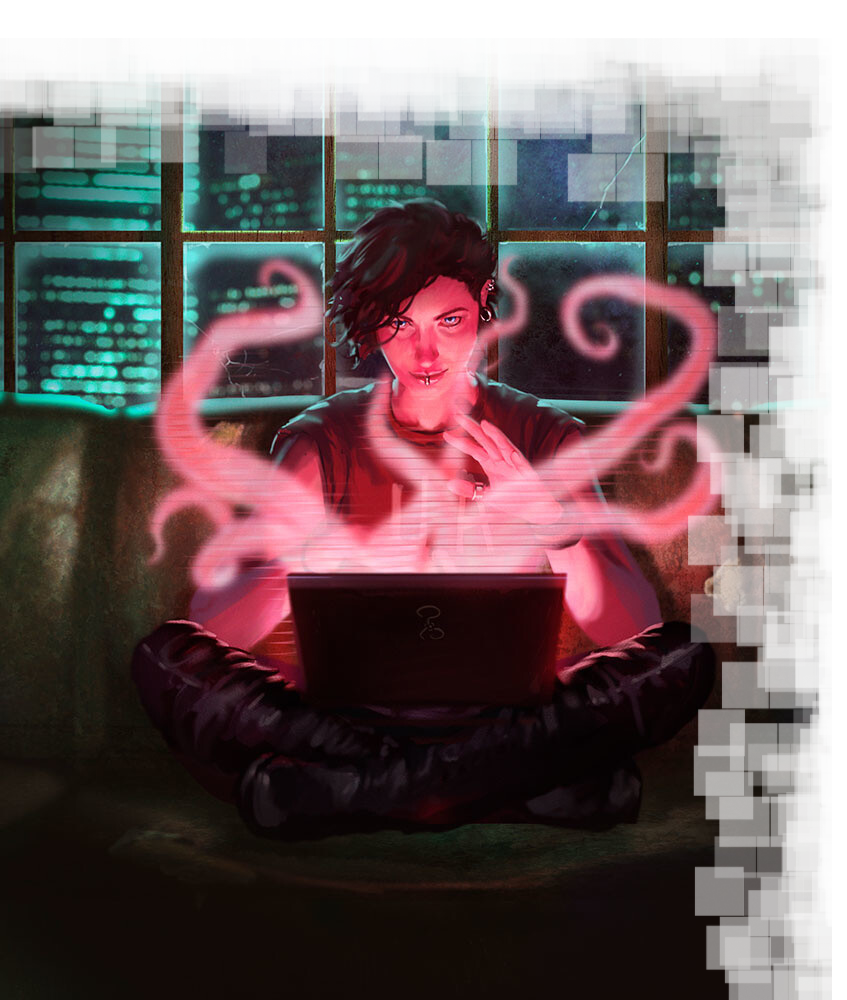
Wizard
School of Technomancy
A new world brings new opportunities as the magical and the mundane fuse into novel patterns. The technomage combines the rising power of magic with a deep understanding of technology. The technomage has a roster of spells that he or she may cast, and in addition gains new powers that meld magic and machinery.
Technomancy Savant
Beginning when you select this school at 2nd level, you change your spellbook into a E-book device infused with magic, allowing you to save spells on it in a special format called "spellfiles". The cost or the time you must spend to copy a spell in your E-book device is halved (your choice).
Machine Empathy
Also at 2nd level, you gain proficiency with one of the following tools: engineering kit, hacking tools or mechanic tools, and whenever you make an ability check using the chosen tool, you add twice your proficiency bonus to that roll.
Program Spell
At 6th level, you can cast a 5th-level spell or lower with a casting time of 1 action while you're touching an electronic device. When you do so, you spend the spell slot and the material components (if any), but none of the spell effects occur. Instead, the spell is uploaded into the device for later use. You determine the method of activating the spell, such as typing a specific word, flicking a switch or similar. If the device already have a spell programmed, you cannot use this feature in that device until the previous spell is used or dismissed.
After that, a creature that has an Intelligence score of at least 6 can use an action to activate the spell and cast the programmed spell in the device. The creature must know the method of activation to cast the spell (for example, you can program the haste spell to be casted in a creature when it hits Control-Alt-H in the keyboard). A concentration spell placed in a device cannot be activated if you are concentrating on another spell.
When you program a spell in this way, it must be used within 8 hours. After that time, the magic fades and is wasted. The programmed spell is also lost if the device is destroyed or after you finish a long rest.
Once you use this feature, you can't use it again until you finish a short or long rest.
Online Casting
At 10th level, you can cast certain spells through electronic devices, including cameras, smartphones, tablets, computers, and so on by following this rules.
- You can only use this feature to cast spells that target a specific creature or objective.
- The range is determined from you to the device and then from the device to your target.
- If the spell requires you to see your target, you must be able to see it directly in order to cast it. This also applies if the spell requires the target to see or hear you. If the device have a camera, a screen or speakers, you can try to hack and gain access to these parts for casting your spells.
You can use this feature a number of times equal to your Intelligence modifier (minimum of once), and you regain your expended uses when you finish a long rest.
Download Spell
At 14th level, you can download temporary spellfiles into your E-book device to cast them once.
When you prepare your spells, you can choose two spells of 4th level or lower you know. These spells don't count against the total number of spells you can prepare and you can cast each of them once without expending a spell slot until you finish a long rest.

Feats
A feat represents a talent or an area of expertise that gives a character special capabilities. It embodies training, experience, and abilities beyond what a class provides. Here are some feats you can use in modern campaigns.
Gunslinger
Prerequisite: Proficiency with at least one firearm.
Thanks to extensive practice with firearms, you gain the following benefits:
- Being within 5 feet of a hostile creature doesn't impose disadvantage on your ranged attack rolls with firearms.
- Once per turn, when you attack with a firearm you can reload it as a free action.
Hacker
You have worked with several hacking programs and devices, gaining the following benefits:
- Increase your Intelligence score by 1, to a maximum of 20.
- You gain proficiency with the hacking tools.
- When you use your action to to operate an electronic device, you can make an additional action to operate the device for free.
Malware Master
You have spent hours studying and creating malwares, gaining the following benefits:
- Increase your Intelligence score by 1, to a maximum of 20.
- You gain proficiency with the hacking tools.
- You can add half your proficiency bonus to the malware DC. In addition, you count as two characters for purposes of reducing the time it takes to create a malware.
Mechanic
You have spent years of looking and repairing engines and other parts of vehicles, gaining the following benefits:
- You gain proficiency with the mechanic tools.
- Whenever you repair a damaged vehicle using the mechanic tools, you repair an extra number of hit points of damage equal to your proficiency bonus.
Sapper
You have practiced extensively with a variety of explosives, gaining the following benefits:
- Increase your Dexterity score by 1, to a maximum of 20.
- You can add half your proficiency bonus to the planted explosives DC.
Tech Savant
Thanks to extensive work and understanding of electronic devices, you gain the following benefits:
- Increase your Intelligence score by 1, to a maximum of 20.
- You gain proficiency with the engineering kit or the mechanic tools (your choice).
- You have advantage on Intelligence checks made to diagnose and repair electronic or mechanical devices.
Vehicle Expert
You have been driving or piloting more time than most of the common people, gaining the following benefits:
- Choose between vehicles (land), vehicles (air), or vehicles (water). You gain proficiency with the choosen vehicle.
- Whenever you make a Dexterity check to do a maneuver or for regaining control of a vehicle, you can add twice your proficiency bonus. This bonus only applies when driving or piloting vehicles you are proficient with.
- You can select this feat multiple times. Each time you do so, you must choose a different vehicle proficiency.
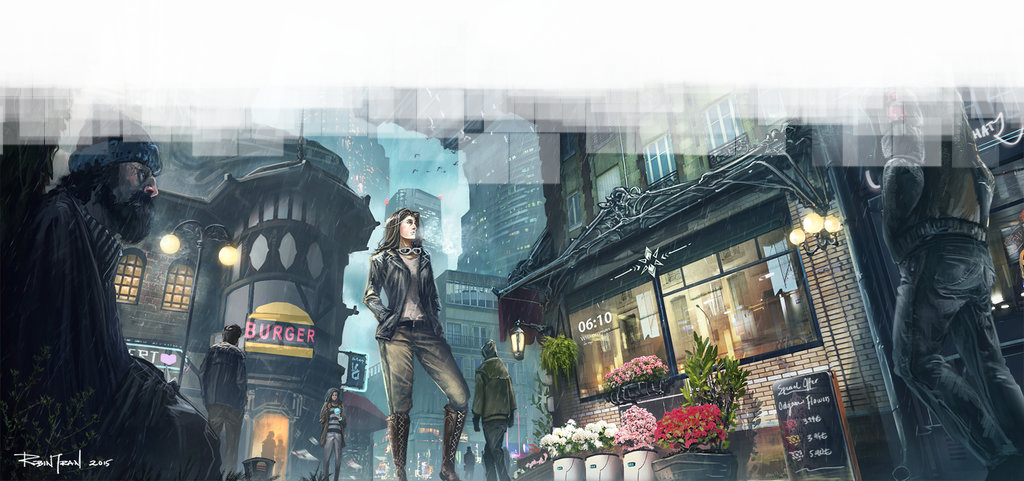
PART 2
Modern Equipment
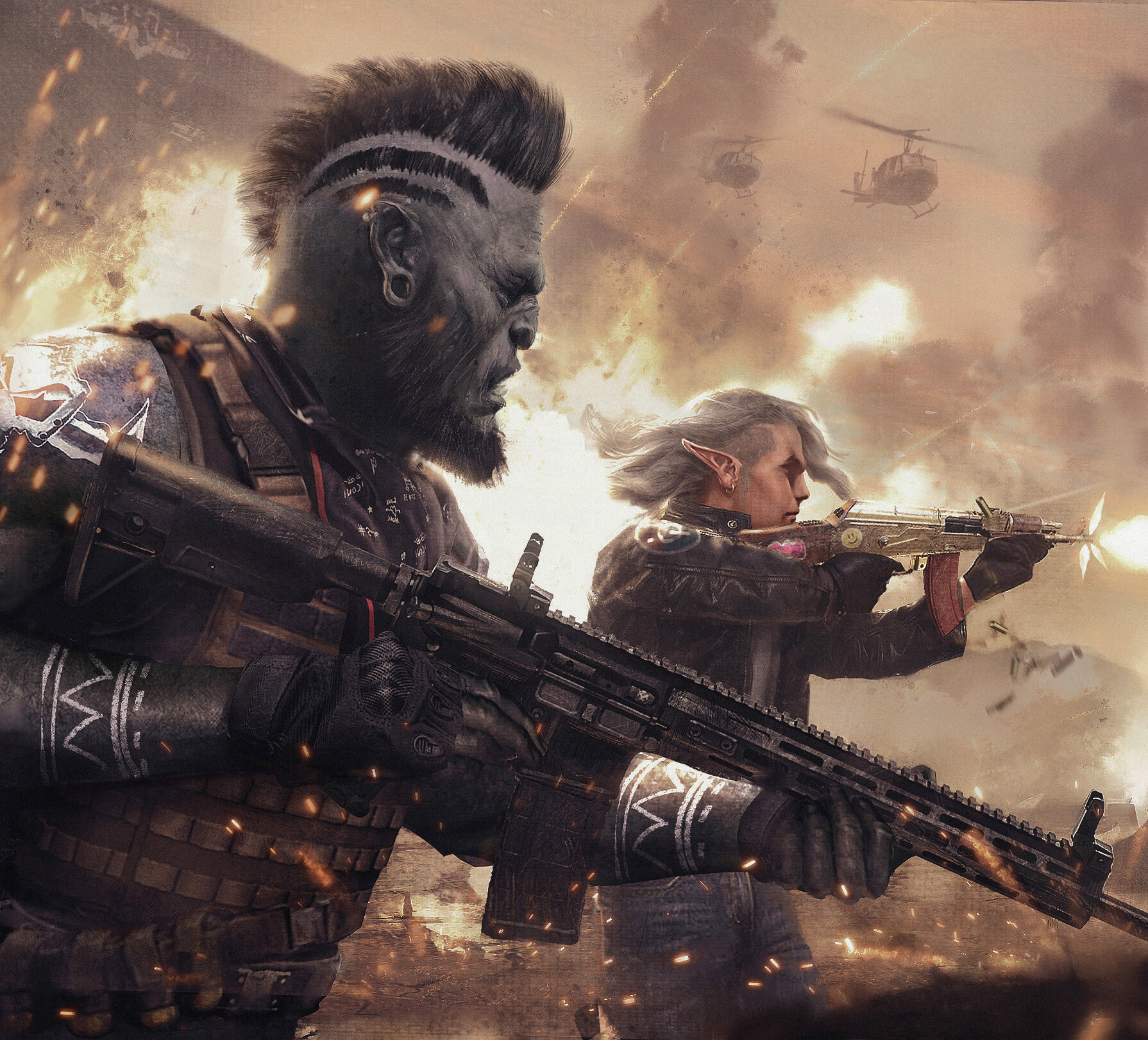
New Equipment
In a world filled with technology, machines and electronic devices, the characters have plenty of equipment available for their needs. Most of the objects described here can be bought through legitimate dealers, some of them might be harder to find, and a few might be available only in certain areas or they are completely restricted for buying.
Currency
Most modern worlds uses a particular currency instead of gold coins, and almost every individual uses a credit or debit card for buying an item (still, they might have some cash in their pockets). To represent this, all prices found in this book are in "Credits" ($), a generic currency, and for easier conversions from other books, 1 credit equals to 1 gold piece (so if an object originally cost 5 sp, it will cost $0,5 in a modern setting).
Restricted Objects
Some objects might require licenses to own or operate, or are restricted in use to qualifying organizations or individuals. In such cases, a character must purchase a license to legally own the object. The four levels of restriction are as follows.
- Licensed. The owner must obtain a license to own or operate the object legally.
- Restricted. Only specially qualified individuals or organizations are technically allowed to own the object.
- Military. The object is sold primarily to legitimate police and military organizations.
- Illegal. The object is illegal in all but specific, highly regulated circumstances.
Even though it's up to the DM to determine which objects require a license, here are some examples of licenses a character can buy.
Licenses for Restricted Objects
| License Name | Level | Objects Covered |
|---|---|---|
| Small Guns | Licensed | Pistols, revolvers |
| Collector | Licensed | Some pre-modern weapons and armor, like a battle axe |
| Medium Guns & Armor | Restricted | Medium armor, assault rifles, submachine guns |
| Armed Forces | Military | Heavy armor, shields, sniper rifles, light machineguns |
| Explosives | Military | Grenade launchers, most explosives |
| Chemical Weapons | Illegal | White phosphorus explosives |
Starting Equipment and Restriction
In order to being able to use the starting equipment, is considered that all characters have the appropriate license for every object they chose during the character creation process.
Purchasing a License
When a character wants a restricted object, it must have an appropriate license for buying it from a legitimate dealer. Most objects that requires a license that can be obtained after a workweek (5 days), but others might require more time. A character must spend at least 8 hours of each day engaged in this activity for that day to count toward the purchase of a license. The cost and time for getting a license is shown in the table below. Military or Illegal licenses might require other steps, such as a background check or a practical exam.
Purchasing a License
| Level | Cost | Time |
|---|---|---|
| 1st (Licensed) | $50 | 1 workweek |
| 2nd (Restricted) | $250 | 1 workweek |
| 3rd (Military) | $750 | 2 workweeks |
| 4th (Illegal) | $1,500 | 3 workweeks |
The Black Market
A character can obtain an object without going through the hassle of getting a license first in the black market. For this, the character must make an Intelligence (Investigation) check to find a dealer selling the item first. The DC for this equals to 15 + restriction level of the object.
On a success, the character locates the black market dealer that's selling the object. Then, the player rolls a percentile dice and consults the Black Market table, applying a modifier based on the item's restriction level. The character also makes a Charisma (Persuasion) check and adds that check's total to the roll. The subsequent total determines what a seller is asking for the item.
Restriction Modifier
| Restriction Level | Days to Find a Seller | d100 Roll Modifier |
|---|---|---|
| Licensed | 1d4 | +10 |
| Restricted | 1d6 | 0 |
| Military | 1d8 | -10 |
| Illegal | 1d10 | -20 |
The Black Market
| d100 + Mod | You Find... |
|---|---|
| 20 or lower | A seller asking twice the base price |
| 21-60 | A seller asking for one and a half times the base price |
| 61-80 | A seller asking for the full base price |
| 81-90 | A seller asking for a half the base price |
| 91 or higher | A seller asking for a quarter of the base price |
Modern Armor
| Armor | Cost | Armor Class (AC) | Strength | Stealth | Weight |
|---|---|---|---|---|---|
| Light Armor | |||||
| Heavy coat | $5 | 11 + Dex modifier | — | Disadvantage | 6 lb. |
| Leather jacket | $10 | 11 + Dex modifier | — | — | 4 lb. |
| Light undercover shirt * | $45 | 11 + Dex modifier | — | — | 2 lb. |
| Ghillie Suit | $50 | 11 + Dex modifier | — | Special | 5 lb. |
| Kevlar-lined coat * | $50 | 12 + Dex modifier | — | — | 8 lb. |
| Undercover vest * | $75 | 13 + Dex modifier | — | — | 3 lb. |
| Medium Armor | |||||
| Concealable vest * | $75 | 13 + Dex modifier (max 2) | — | — | 4 lb. |
| Light-duty vest * | $500 | 14 + Dex modifier (max 3) | — | — | 8 lb. |
| Tactical vest * | $1,500 | 15 + Dex modifier (max 2) | Str 10 | Disadvantage | 10 lb. |
| Heavy Armor | |||||
| Special response vest * | $1,500 | 15 | Str 10 | Disadvantage | 15 lb. |
| Land warrior armor * | $2,000 | 17 | Str 13 | Disadvantage | 10 lb. |
| Forced entry unit * | $2,500 | 18 | Str 13 | Disadvantage | 20 lb. |
| Shield | |||||
| Riot shield * | $100 | +2 | — | — | 6 lb. |
* Check the Armor Properties section to read about the damage reduction against attacks.
Modern Armor
The Armor table collects the most commonly available types of armor found in the game and separates them into three categories: light armor, medium armor, and heavy armor.
The Armor table shows the cost, weight, and other properties of the common types of armor worn in the modern worlds.
Concealable Vest. Standard issue in many police forces, this vest provides maximum protection in a garment that can be worn all day long under regular clothing. While it may go unnoticed by a quick glance, it is usually visible to anyone looking closely for it
Forced Entry Unit. The most powerful protection available is built into this suit, which consists of a heavy torso jacket with ceramic plates over the chest and back, neck and groin guards, arm protection and a helmet. Heavy and cumbersome, this armor is generally only donned by tactical officers heading into a dangerous assault.
Ghillie Suit. A ghillie suit is a type of camouflage clothing designed to resemble the background environment such as foliage, snow or sand. Typically, it is a net or cloth garment covered in loose strips of burlap, cloth, or twine. A character wearing a ghillie suit with appropriate coloration is considered proficient for any Dexterity (Stealth) checks it make for hiding. If it's already proficient with that skill, the proficiency bonus is doubled instead.
Land Warrior Armor. It is designed to improve the connectivity and combat effectiveness of combat personnel in the army. Improvements include modernized body armor, a helmet with a mounted flashlight, integrated communication systems, and a special eye monitor (infrared goggles).
Leather Jacket. This armor is represented by a heavy leather biker's jacket.
Light-duty Vest. A lightweight tactical vest designed for extended use by riot police and forces on alert for potential attack, this armor sacrifices a degree of protection for a modicum of comfort—at least compared to other tactical body armors.
Light Undercover Shirt. Designed for deep undercover work in which it's critical that the wearer not appear to be armed or armored, this garment consists of a T-shirt with a band of light protective material sewn in around the lower torso.
Special Response Vest. Built like the tactical vest, but incorporating groin and neck protection as well as a ceramic plate over the chest, this armor provides additional protection in battles against heavily armed opponents.
Tactical Vest. The standard body armor for police tactical units, this vest provides full-torso protection in the toughest flexible protective materials available.
Undercover Vest. Covering a larger area of the torso, this vest provides better protection than the light undercover shirt—but it’s also more easily noticed. It’s best used when the armor should remain unseen but the wearer doesn’t expect to face much scrutiny
Armor Properties
The following armor grants some kind of protection against piercing damage dealt by firearms or slashing damage dealt by melee attacks.
Light Undercover Shirt. Piercing damage that you take from firearms is reduced by 2.
Kevlar-lined Coat. Piercing damage that you take from firearms is reduced by 2.
Undercover Vest. Piercing damage that you take from firearms is reduced by 2.
Concealable Vest. Piercing damage that you take from firearms is reduced by 3.
Light-duty Vest. Piercing damage that you take from firearms is reduced by 3.
Tactical Vest. You have resistance against piercing damage you take from firearms.
Special Response Vest. You have resistance against piercing damage you take from firearms. Slashing damage that you take is also reduced by 2.
Land Warrior Armor. Piercing damage that you take from firearms is reduced by 5. Slashing damage that you take is also reduced by 5.
Forced Entry Unit. You have resistance against piercing damage you take from firearms. You also have resistance against slashing damage.
Riot Shield. Piercing damage that you take from firearms is reduced by 3.
Modern Weapons
Your class grants proficiency in certain weapons, reflecting both the class's focus and the tools you are most likely to use.
The Weapons table shows some weapons used in the modern worlds of D&D, their price and weight, the damage they deal when they hit, and any special properties they possess.
Special Weapons
This section describes weapons that have special rules or require further explanation.
Baton, Expandable. This weapon can be collapsed to reduce its size and increase its concealability. A collapsed baton can't be used as a weapon but it gives the conceal property. Extending or collapsing the baton is a free action.
Baton, Stun. A stun baton has 5 charges. When you hit a creature with a stun baton, you can expend one charge. The target must make a Constitution saving throw (DC 10) or be paralyzed until the start of your next turn. The stun baton must be recharged using one battery after expending the last charge.
Dart Gun. This air-dart gun fires a needle via an air compressor. The needle itself inflicts no damage, but it can deliver an injection with any poison to the target. Each dart cost $0,5, and a vial of poison can coat three darts. You can read more about poisons in the chapter 8 of the Dungeon Master's Guide.
Grenade Launcher. This weapon allows you to propel a fragmentation, smoke or tear gas grenade up to 120 feet away. You can target a creature instead using a grenade launcher. On a hit you deal 1d6 bludgeoning damage to that creature, and then the grenade effect occurs.
Ketch-All Pole. A Large or smaller creature hit by a ketch-all pole is restrained until it is freed. A ketch-all pole has no effect on creatures that are formless, or creatures that are Huge or larger. A creature can use its action to make a DC 10 Strength check, freeing itself or another creature within its reach on a success.
When you use an action, bonus action, or reaction to attack with a ketch-all pole, you can make only one attack regardless of the number of attacks you can normally make.
Survival Knife. A survival knife comes with a small compass attached to the handle or pommel, and a hollow handle, which allows storing small items, such as some waterproof matches, a fishing string, or a piece of paper.
Taser Gun. A taser fires two small barbed darts intended to puncture the skin and remain attached to the target, then it applies a high-voltage, but low-current electrical charge. When you hit a creature, it takes 1d4 lightning damage and it must make a Constitution saving throw (DC 15) or be paralyzed until the end of your next turn. While the target is within range, on each of your turns for the next 4 rounds you can use your action to deal 1d4 lightning damage and maintain the target paralyzed. You can only have one creature under the taser effects, and on each of its turns it can use an action to make a Constitution check. On a success, it removes the darts and is no longer paralyzed.
A Taser must be recharged using a battery after five shots.
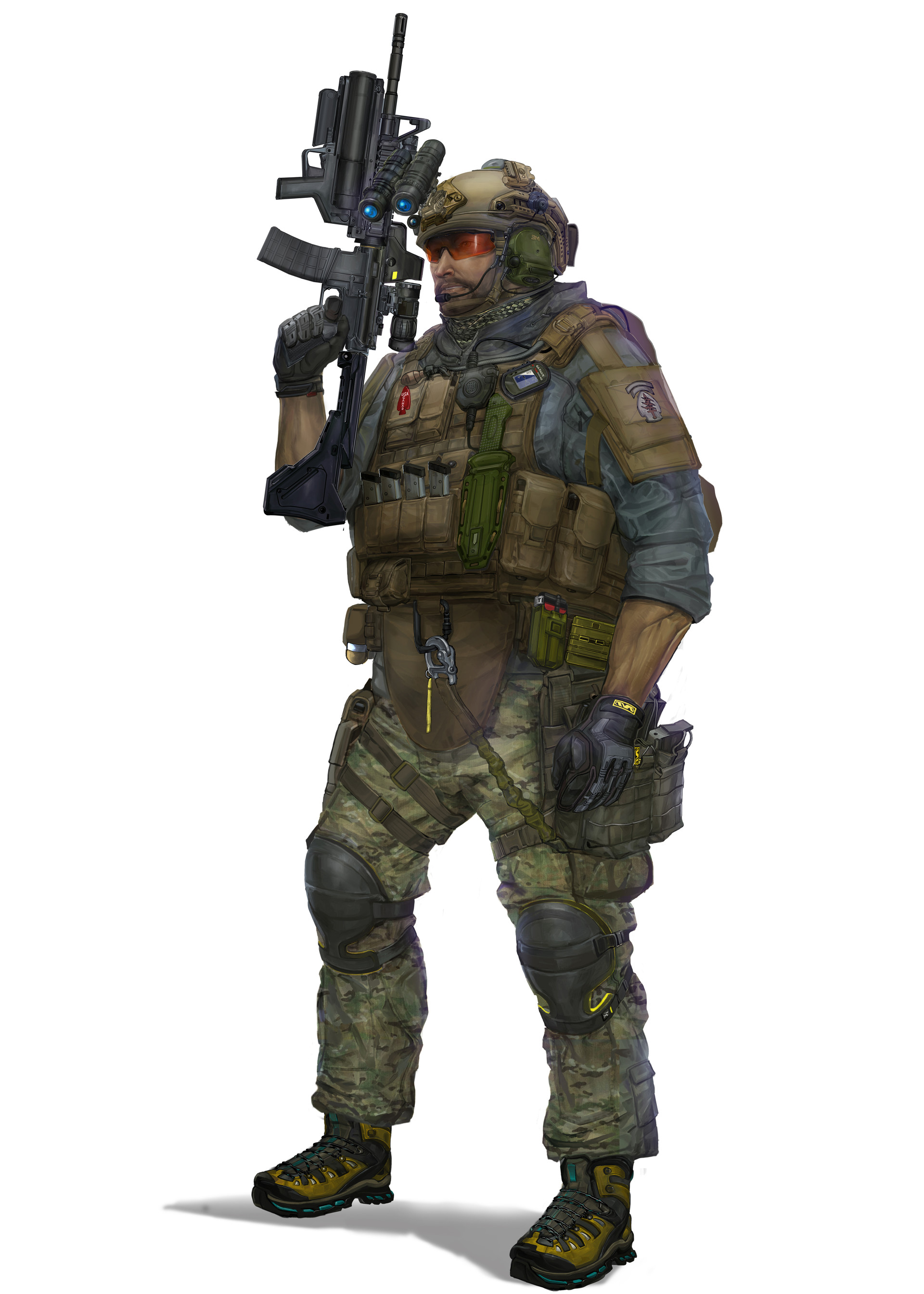
Modern Weapons
| Name | Cost | Damage | Weight | Properties |
|---|---|---|---|---|
| Simple Melee Weapons | ||||
| Baton, expandable | $12 | 1d6 bludgeoning | 2 lb. | Covert, finesse, light |
| Baton, metal | $8 | 1d6 bludgeoning | 2 lb. | Finesse, light |
| Baton, stun | $20 | 1d4 lightning | 1 lb. | Finesse, light, special |
| Brass knuckles | $3 | 1d4 budgeoning | 1 lb. | Covert, finesse, light |
| Firefighter axe | $10 | 1d8 slashing | 6 lb. | Two-handed |
| Ketch-All pole | $10 | — | 8 lb. | Reach, special |
| Machete | $10 | 1d6 slashing | 2 lb. | — |
| Pocket knife | $3 | 1d4 piercing | 1 lb. | Covert, finesse, light, thrown (range 20/60) |
| Spiked bat | $6 | 1d6 piercing | 3 lb. | Versatile (1d8) |
| Survival knife | $10 | 1d6 piercing | 1 lb. | Covert, finesse, light, thrown (range 20/60) |
| Simple Ranged Weapons | ||||
| Dart gun | $150 | Special | 3 lb. | Ammunition (range 40/120), reload 1 |
| Pistol, light | $200 | 2d6 piercing | 3 lb. | Ammunition (range 60/180), light, reload 12 |
| Pistol, pocket | $250 | 2d4 piercing | 1 lb. | Ammunition (range 20/60), covert, light, reload 7 |
| Revolver | $250 | 2d8 piercing | 2 lb. | Ammunition (range 50/150), slow reload 6 |
| Rifle, hunting | $500 | 2d10 piercing | 8 lb. | Ammunition (range 180/540), reload 1, two-handed |
| Shotgun, double-barrel | $500 | 2d8 piercing | 7 lb. | Ammunition (range 30/90), CQB, reload 2, two-handed |
| Taser gun | $100 | Special | 2 lb. | Ammunition (range 15/35), special |
| Martial Melee Weapons | ||||
| Chain | $2 | 1d4 bludgeoning | 5 lb. | Reach |
| Chainsaw | $50 | 1d12 slashing | 15 lb. | Heavy, two-handed |
| Sledgehammer | $15 | 1d10 bludgeoning | 12 lb. | Heavy, two-handed |
| Tactical tomahawk | $10 | 1d6 slashing | 2 lb. | Finesse, light, thrown (range 20/60) |
| Martial Ranged Weapons | ||||
| Grenade launcher | $750 | Special | 12 lb. | Ammunition (range special), heavy, reload 6, two-handed |
| Light machinegun | $750 | 2d10 piercing | 20 lb. | Ammunition (range 150/450), autofire, heavy, slow reload 120, two-handed |
| Machine pistol | $350 | 2d6 piercing | 3 lb. | Ammunition (range 60/180), burst fire, light, reload 20 |
| Pistol, heavy | $300 | 2d8 piercing | 3 lb. | Ammunition (range 60/180), reload 7 |
| Rifle, sniper | $650 | 2d10 piercing | 8 lb. | Ammunition (range 180/540), reload 8, two-handed |
| Rifle, assault | $600 | 2d8 piercing | 8 lb. | Ammunition (range 100/300), burst fire, reload 30, two-handed |
| Shotgun, tactical | $550 | 2d8 piercing | 7 lb. | Ammunition (range 30/90), CQB, reload 6, two-handed |
| Submachine gun | $500 | 2d8 piercing | 6 lb. | Ammunition (range 80/240), burst fire, reload 30, two-handed |
| Explosive devices | Varies | Varies | Varies | Special |
Weapon Properties
Many weapons have special properties related to their use, as shown in the Weapons table.
Autofire. A weapon that has the autofire property can only spray in a 10-foot-cube area within range by using 10 pieces of ammunition. Each creature in the area you can see must make a Dexterity saving throw, taking the weapon's normal damage on a failed save. The DC equals to 8 + your proficiency bonus (if proficient with the weapon) + your Dexterity modifier. Any target within long range have advantage on this roll.
Burst Fire. A weapon that has the burst fire property can make a normal single-target attack, or it can spray a 10-foot-cube area within normal range by using 10 pieces of ammunition. Each creature in the area you can see must make a Dexterity saving throw, taking the weapon's normal damage on a failed save. The DC equals to 8 + your proficiency bonus (if proficient with the weapon) + your Dexterity modifier.
Covert. You have advantage on Dexterity (Sleight on Hands) checks to conceal this weapon.
CQB. If you hit a creature within 15 feet or less from you, you can add an extra die to the damage roll.
Reload. A limited number of shots can be made with a weapon that has the reload property. A character must then reload it using an action or a bonus action (the character's choice).
Slow Reload. A limited number of shots can be made with a weapon that has the slow reload property. A character must then reload it using an action.
Suppressing Fire
Every firearm can be used for suppressing fire. As an action, you can spray in a 10-foot-cube area within the firearm's normal range using up to ten pieces of ammunition. Each creature in the area must succeed on a Wisdom saving throw (the DC equals to 8 + the number of bullets used) or be affected by this until action the beginning of your next turn. A suppressed creature can't willingly move closer to the source of its suppression. On a critical fail, the creature also takes the weapon's damage. A target automatically succeeds on the save if it can't be frightened.
Firearms Damage Variant
If you think firearms does too much damage, you can reduce the damage to 1 dice instead of 2.
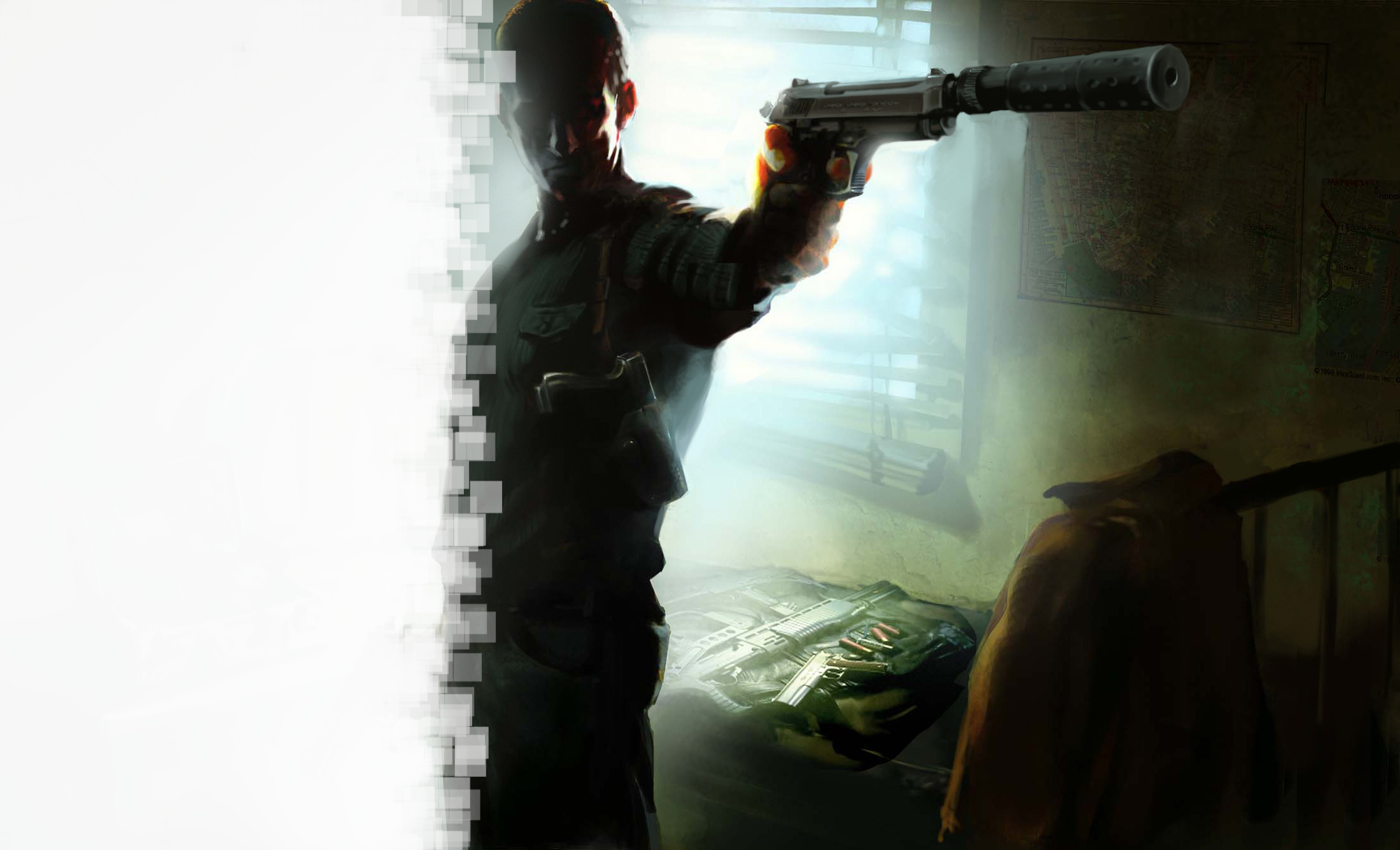
Firearms Accessories
Most of the firearms can be equipped with one or more accessories to improve them. Every accessory has a weapon compatibility, showing which accessories are available for each firearm.
Firearms Accessories
| Item | Cost | Weight |
|---|---|---|
| Firearms Accessories | ||
| Combined module | $550 | 1 lb. |
| Concealed holster | $5 | 1/2 lb. |
| Deployable Bipod | $100 | 1 lb. |
| Laser sight | $500 | 1/2 lb. |
| Laser sight, infrared | $600 | 1/2 lb. |
| Speed loader | $2 | 1/2 lb. |
| Scope (x2) | $100 | 1/2 lb. |
| Scope (x4) | $200 | 1/2 lb. |
| Scope (x8) | $400 | 1 lb. |
| Scope, thermal (x2) | $900 | 2 lb. |
| Scope, thermal (x4) | $1,000 | 2 lb. |
| Scope, thermal (x8) | $1,200 | 2 lb. |
| Suppressor | $200 | 1 lb. |
| Tactical flashlight | $10 | 1/2 lb. |
| Ammunition | ||
| Pistol bullets (20) | $2 | 1/2 lb. |
| Rifle bullets (20) | $3 | 1 lb. |
| Shotgun shells (20) | $3 | 1 lb. |
| Light machinegun bullets (20) | $4 | 1 lb. |
| Special ammunition | ||
| Acid (10) | +$100 | — |
| Breaching shotgun shells (10) | +$5 | — |
| Cold (10) | +$100 | — |
| Fire (10) | +$100 | — |
| Holy (10) | +$100 | — |
| Silvered (10) | +$100 | — |
| XREP shotgun shells (10) | +$50 | — |
Combined Module. The Combined Module is a multifunctional gadget that combines a laser sight and a tactical flashlight. You can use a bonus action to toggle between the laser sight and the tactical flashlight. You can also use a bonus action to turn it off.
While you have the laser sight on, you gain a +1 bonus on attack rolls with that firearm.
While you have the tactical flashlight on, the light illuminates a 40-foot cone and dim light for an additional 40 feet.
Weapon compatibility: Pistols, rifles, shotguns and submachine guns. You cannot add it to a weapon that already has a laser sight or a tactical flashlight.
Concealed Holster. A concealed holster is designed to help keep a weapon out of sight. In most cases, this is a shoulder holster or a waistband holster. While the weapon remains in the holster, it gains the covert property. A character can carry up to three concealed holsters (two shoulder holsters and one waistband holster)
Weapon compatibility: Dart guns, pistols, revolvers and Taser guns.
Deployable Bipod. Bipods are commonly used on weapons to provide a forward rest and reduce motion. They are also seen on other long-barreled weapons, such as sniper rifles. Bipods permit operators to easily rest a weapon on objects, like the ground or a wall, reducing their fatigue and increasing accuracy and stability.
You must use your action to deploy or retract the bipod. While you have the bipod deployed, you gain advantage when shooting over 100 feet. To deploy a bipod you must be prone or in a stable shooting position. If you have the bipod deployed and shooting from the hip, you have disadvantage on the attack rolls.
Weapon compatibility: Rifles.
Laser Sight. This gadget is a small laser placed on a handgun or a rifle and aligned to emit a visible beam parallel to the barrel to assist in shooting. The laser color can be red or green.
While you have the laser sight on, you gain a +1 bonus on attack rolls with that firearm. You can use a bonus action to turn the laser on or off.
Weapon compatibility: Pistols, rifles, shotguns and submachine guns. You cannot add it to a weapon that already has a combined module or a tactical flashlight.
Laser Sight, Infrared. This laser sight uses an infrared diode to produce a dot invisible to the eye but detectable with infrared devices.
While you have the laser sight on, you gain a +1 bonus on attack rolls with that firearm if you are wearing infrared goggles. You can use a bonus action to turn the laser on or off.
Weapon compatibility: Pistols, rifles, shotguns and submachine guns. You cannot add it to a weapon that already has a combined module or a tactical flashlight.
Scope. Scopes are used to increase the normal range of a weapon, allowing the user to shoot farther without having disadvantage on targeting. Depending on the scope you add to the weapon, you increase the normal range in a specific amount, as shown on the following table.
| Scope | Range Increment |
|---|---|
| x2 | 50% |
| x4 | 100% |
| x8 | 200% |
Weapon compatibility: light machineguns, rifles, shotguns (x2 only) and submachine guns (x2 only). You can only add one scope to a weapon.
Scope, Thermal. The thermal scope is a sighting device combining a compact thermographic camera and an aiming reticle. It creates a visual based on the temperature, allowing you to easily identificate it, such as a creature. This allows the user to target any heat source (creature or object) without disadvantage caused by darkness.
Weapon compatibility: light machineguns, rifles, shotguns (x2 only) and submachine guns (x2 only). You can only add one scope to a weapon.
Speed Loader. A speed loader holds 6 bullets in a ring in a position that mirrors the chambers in a revolver cylinder, allowing the character to insert all bullets at once. Using a speed loader you can reload a revolver using a bonus action. You can use an action to put 6 bullets in an empty speed loader for future uses.
Weapon compatibility: Revolvers.
Suppressor. A suppressor is a device attached to or part of the barrel of a firearm which reduces (but don't negate) the amount of noise and visible muzzle flash generated by firing.
When you make a ranged attack with a suppressed weapon, you don't automatically reveal your location while hiding. Any creature within 20 feet from the weapon can still hear the gunshot, but not necessarily where it's originated. You can use your action to add or remove the suppressor from the weapon.
Weapon compatibility: Pistols, rifles, shotguns and submachine guns.
Tactical Flashlight. While you have the tactical flashlight on, the light illuminates a 40-foot cone and dim light for an additional 40 feet. You can use a bonus action to turn the flashlight on or off.
Weapon compatibility: Pistols, rifles, shotguns and submachine guns. You cannot add it to a weapon that already has a combined module or a laser sight (normal or infrared).
Special Ammunition
While most of the time everyone firing a weapon will use standard rounds of ammunition, in some cases you might want to have some bullets with special properties.
Chemical Ammunition. Each of these projectiles carries a load of some chemical (or alchemical) material inside, such as magnesium (fire) or ultraviolet fluid (holy). When it hits a target, the projectile shatters, releasing the material directly onto the target. When you hit a creature with an acid, cold or fire ammunition, you deal an extra 1d4 damage. The damage type depends on the type of the ammunition.
When you hit a fiend or undead creature with a holy ammunition you deal an extra 1d6 radiant damage instead.
Breaching Shotgun Shells. These rounds are designed to destroy door deadbolts, locks, and hinges without risking lives by ricocheting or by flying on at lethal speed through the door, as traditional buckshot can. Each one of this shells deals double damage to doors.
Silvered Ammunition. This ammunition consist on standard bullets plated on silver, which are mostly used against creatures that are susceptible to silver weapons. Each round follow the rules of silvered weapons detailed in the chapter 5 of the Player's Handbook.
XREP shotgun shells are a long-range wireless electro-shock projectiles. When a creature is hit by a XREP shell, it takes lightning damage instead of piercing damage, and the target must make a DC 15 Constitution saving throw or be paralyzed until the start of your next turn.
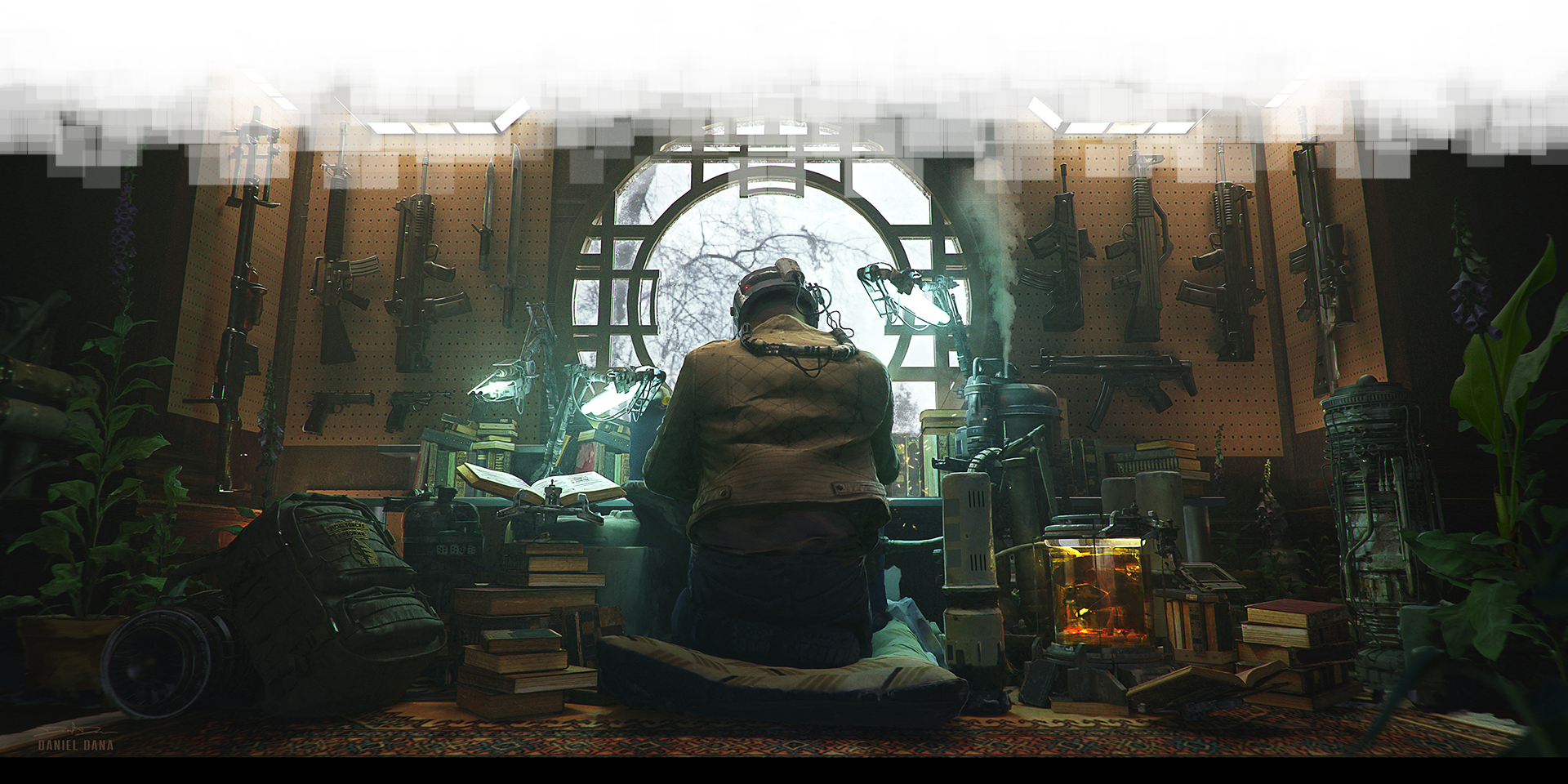
Explosive Devices
An explosive device causes a blast or explosion of some kind. Explosives are divided in two categories: grenades or planted explosives. Not every explosive is available on both types, and a character must choose one of the available categories when buying an explosive.
Grenades. A character can use its action to throw a grenade at a point up to 60 feet away. With a grenade launcher, the character can propel the grenade up to 120 feet away. If the effects requires a creature to make a saving throw, the DC for that check is 15 unless stated otherwise.
Planted Explosives. A character can use its action to prepare and place an explosive in a location, and it will explode after the detonator is triggered. If a planted explosive requires a creature to make a saving throw, the DC for that check is 12 unless stated otherwise.
Explosive Devices
| Item | Cost | Weight |
|---|---|---|
| Explosives | ||
| Flashbang | $40 | 1 lb. |
| Fragmentation | $50 | 1 lb. |
| Incendiary | $50 | 2 lb. |
| Plastic explosive | $50 | 1 lb. |
| Smoke | $25 | 1/2 lb. |
| Tear Gas | $40 | 1/2 lb. |
| Thermite | $40 | 2 lb. |
| Thermobaric | $50 | 1 lb. |
| White Phosphorus | $60 | 2 lb. |
| Detonators | ||
| Improvised detonator | Varies | — |
| Remote detonator, radio | $20 | — |
| Remote detonator, wired | $15 | 20 lb. |
| Timed | $5 | — |
| Trigger, pressure | $10 | — |
| Trigger, proximity | $15 | — |
| Trigger, trip | $5 | — |
Explosive Types
There are several types of explosives you can find in a modern world. In the following section you can find a description of each and their properties depending on their category.
Flashbang
A flashbang is a non-lethal explosive device used to temporarily disorient an enemy's senses. It is designed to produce a blinding flash of light and an intensely loud "bang" without causing permanent injury.
Grenade. As an action, a character can throw a flashbang at a point. Each creature within 20 feet of the point must make a Dexterity saving throw or be blinded and deafened until the end of your next turn.
Fragmentation
This explosives are designed to disperse lethal fragments on detonation. The body is generally made of a hard synthetic material or steel, which will provide some fragmentation as shards and splinters.
Grenade. As an action, a character can throw a grenade at a point. Each creature within 20 feet of the point must make a Dexterity saving throw, taking 4d6 piercing damage on a failed save, or half as much damage on a successful one.
Planted. When it's activated, each creature within 20 feet of the point must make a Dexterity saving throw, taking 4d6 piercing damage on a failed save, or half as much damage on a successful one.
Incendiary
Incendiary devices produce intense heat by means of a chemical reaction.
Grenade. As an action, a character can throw a grenade at a point. Each creature within 10 feet of the point must make a Dexterity saving throw, taking 1d6 fire damage on a failed save, or half as much damage on a successful one. On a failed save, the target also burns for 1 minute. The burning target sheds bright light in a 10-foot radius and dim light for an additional 10 feet. At the beginning of each of its turns, the target takes 1d6 fire damage, and it can end this damage by using its action to make a DC 10 Dexterity check to extinguish the flames.
Plastic Explosive
Plastic explosive is a soft and hand-moldable solid form of explosive material. Plastic explosives are especially suited for explosive demolition of obstacles and fortifications by engineers, combat engineers and criminals. It can be cut, formed, wrapped, and combined with others of its type.
Planted. Each creature within 5 feet of the explosive must make a Dexterity saving throw, taking 3d6 force damage on a failed save, or half as much damage on a successful one. It deals double damage against objects and structures.
You can combine units of plastic explosive so they explode at the same time. Each additional pound of plastic explosive increases the damage by 1d6 (to a maximum of 10d6) and the burst radius by 5 feet (to a maximum of 20 feet).
In addition, when you combine two or more units, you can change the burst radius to a cone-shaped explosion (you must choose the direction of the cone when you plant it).
Smoke
Smoke grenades are used as ground-to-ground or ground-to-air signaling devices, target or landing zone marking devices, and to create a smoke-screen for concealment. When buying a smoke grenade you can also choose the color of the smoke.
Grenade. As an action, a character can throw a smoke grenade at a point. One round after the grenade lands, it emits a cloud of smoke that creates a heavily obscured area in a 20-foot radius. It disperses after 1 minute, though a moderate wind (at least 10 miles per hour) disperses the smoke in 4 rounds; a strong wind (20 or more miles per hour) disperses it in 1 round.
Tear Gas
Tear gas works by irritating mucous membranes in the eyes, nose, mouth and lungs, and causes crying, sneezing, coughing, difficulty breathing, pain in the eyes, and temporary blindness.
Grenade. As an action, a character can throw a smoke grenade at a point. One round after the grenade lands, it emits a cloud of tear gas that creates a heavily obscured area in a 20-foot radius. It disperses after 1 minute, though a moderate wind (at least 10 miles per hour) disperses the smoke in 4 rounds; a strong wind (20 or more miles per hour) disperses it in 1 round. Any creature starting its turn in the gas is considered blinded and it must make a Constitution saving throw or be incapacitated (DC 15). A creature wearing a gas mask automatically succeeds the saving throw.
Thermite
Thermite does not technically explode. Instead, it creates intense heat meant to burn or melt through an object upon which the thermite is set.
Planted. Each creature that ends its turn in the same space of the thermite must make a Dexterity saving throw, taking 6d6 fire damage on a failed save, or half as much damage on a successful one. It last for 1 minute and it provides bright light for a 5-foot radius and dim light for an additional 5 feet while burning. It deals double damage against objects and structures.
Thermobaric
A thermobaric weapon is a type of explosive that uses oxygen from the surrounding air to generate a high-temperature explosion.
Planted. When it's activated, each creature within 30 feet of the point must make a Dexterity saving throw, taking 4d6 fire damage on a failed save, or half as much damage on a successful one.
White Phosphorus
White phosphorus devices use an explosive charge to distribute burning phosphorus across the burst radius.
Grenade. As an action, a character can throw a grenade at a point. Each creature within 10 feet of the point must make a Dexterity saving throw, taking 2d6 fire damage on a failed save, or half as much damage on a successful one. One round after the grenade lands, it emits a cloud of white phosphorus that creates a heavily obscured area in a 10-foot radius. It disperses after 1 minute, though a moderate wind (at least 10 miles per hour) disperses the smoke in 4 rounds; a strong wind (20 or more miles per hour) disperses it in 1 round. When a creature enters the area for the first time on a turn or starts its turn there, it must make a Constitution saving throw, taking 1d6 fire damage on a failed save, or half as much on a successful one. The damage is increased by 1d6 each time a creature within the area fails the save.
Planted. Each creature within 15 feet of the explosive must make a Dexterity saving throw, taking 2d6 fire damage on a failed save, or half as much damage on a successful one. When detonated, it emits a cloud of white phosphorus that creates a heavily obscured area in a 15-foot radius. It disperses after 1 minute, though a moderate wind (at least 10 miles per hour) disperses the smoke in 4 rounds; a strong wind (20 or more miles per hour) disperses it in 1 round. When a creature enters the area for the first time on a turn or starts its turn there, it must make a Constitution saving throw, taking 1d6 fire damage on a failed save, or half as much on a successful one. The damage is increased by 1d6 each time a creature within the area fails the save.
Detonators
Every planted explosive needs a detonator, and it can be detonated manually, automatically or after a determined time depending on the detonator used.
Improvised Detonator. An improvised detonator is a low-quality detonator created from spare parts and the remains of other detonators. They generally work, but they are also easier to disable due their materials. These detonators cost half of the price of a normal detonator, and any explosive device with an improvised detonator have a 20% chance to fail when triggered.
Remote Detonator, Radio. As an action, you can detonate the explosive remotely if you are within 3,000 feet from it.
Remote Detonator, Wired. As an action, you can detonate the explosive remotely if you are within 1,000 feet from it. This detonator includes a detonating cord.
Timed. When planting the explosive with a timer, you must determine the number of rounds or minutes for the countdown, up to 1 hour. When the countdown ends, the explosive is detonated.
Trigger, Pressure. A planted explosive with a pressure trigger will explode when a creature stands on the detonator.
Trigger, Proximity. When your arm a planted explosive with a proximity trigger detonator, it explodes when a creature moves in the burst area. When planting the explosive, you can reduce the detection radius to a minimum of 5 feet of the explosive.
Trigger, Trip. The explosive is connected to a 20 feet trip wire, and when a creature pass through the wire, the explosive detonates. A creature can make a Wisdom (Perception) check to detect the wire (DC 12).
Gear
Modern settings have a variety of items and objects players can buy. Here's a list of the most common gear that characters can buy for their adventures.
Gear
| Item | Cost | Weight |
|---|---|---|
| Barbed wire (50 ft.) | $75 | 35 lb. |
| Battery | $0,1 | — |
| Binoculars | $15 | 1 lb. |
| Books | ||
| Book, 50 pages | $4 | 1/2 lb. |
| Book, 100 pages | $8 | 2 lb. |
| Book, 200 pages | $17 | 3 lb. |
| Book, 300 pages | $25 | 4 lb. |
| Briefcase | $25 | 2 lb. |
| Camera, still | $40 | 1/2 lb. |
| Camera, video | $80 | 1/2 lb. |
| Compass | $1 | — |
| Computers | ||
| Desktop, Low-End | $300 | 18 lb. |
| Desktop, Mid-Range | $500 | 18 lb. |
| Desktop, High-End | $1,000 | 18 lb. |
| Laptop, Low-End | $400 | 5 lb. |
| Laptop, Mid-Range | $600 | 5 lb. |
| Laptop, High-End | $1,200 | 5 lb. |
| Dictionary | $10 | 2 lb. |
| ECM Jammer | $1,000 | 1 lb. |
| EMF Device | $100 | 1 lb. |
| Fire extinguisher | $25 | 2 lb. |
| Flashlight | $10 | 1 lb. |
| Flash goggles | $500 | — |
| Gas mask | $500 | 1 lb. |
| GPS | $800 | 1 lb. |
| Hammock | $5 | 1 lb. |
| Handbag | $2 | 1 lb. |
| Infrared goggles | $1,000 | 1 lb. |
| Infrared Thermometer | $50 | 1 lb. |
| Light stick | $0,2 | 1/4 lb. |
| Lighter | $0,5 | — |
| Metal detector | $500 | 2 lb. |
| Multi-tool pocketknife | $5 | 2 lb. |
| Parachute | $250 | 50 lb. |
| Pen | $0,01 | - |
| Pepper spray | $1 | - |
| Plastic bottle | $0,2 | 2 lb. (full) |
| Purification kit | $5 | 3 lb. |
| Skis and poles | $15 | 6 lb. |
Gear (Continuation)
| Item | Cost | Weight |
|---|---|---|
| Sleeping Bag | $5 | 1 lb. |
| Smartphones | ||
| Smartphone, Low-End | $100 | 1/2 lb. |
| Smartphone, Mid-Range | $250 | 1/2 lb. |
| Smartphone, High-End | $500 | 1/2 lb. |
| Suitcase | $15 | 12 lb. |
| Tablets | ||
| Tablet, Low-End | $100 | 1/2 lb. |
| Tablet, Mid-Range | $200 | 1/2 lb. |
| Tablet, High-End | $400 | 1/2 lb. |
| Tent, four-person | $4 | 40 lb. |
| Tent, pavilion | $20 | 200 lb. |
| Two-way radio | $20 | 1 lb. |
| USB flash drive | $20 | — |
| Wallet | $0,5 | — |
| Watch | $10 | — |
Gear Description
This section describes items that have special rules or require further explanation.
Barbed wire. This is a roll of barbed steel wire designed to keep individuals in or out. A creature trying to cross barbed wire must make a Dexterity saving throw (DC 10) or take 1d4 piercing damage and be restrained by the wire. A creature restrained by the barbed wire can use its action to make a Strength or Dexterity check (its choice) against the DC. On a success, it frees itself, on a failure, it takes 1d4 piercing damage. For setting up the barbed wire, it comes with a pair of thick gloves and anchor posts.
Battery. An electric battery is a device consisting of one or more electrochemical cells with external connections provided to power electrical devices such as flashlights and metal detectors. Each battery recharges 5 spent charges to any electrical gear.
Binoculars. Objects viewed through the binoculars are magnified to twice their size.
Book. This category includes personal organizers, datebooks, planners, diaries, notebooks, and such. The content and sections may vary depending on the type of book.
Briefcase. Made from leather and plastic. It has mechanical locks that require either a key or a combination to open.
Computer, Desktop. This can be any large computing platform, such as a client workstation or server. The typical desktop computer has hundreds of gigabytes of storage space, a high-quality monitor and a broadband or modem access to the Internet.
Computer, Laptop. A portable version of a desktop computer. In general, laptops are as not as fast or powerful as its equivalent desktop version.
Dictionary. Inside this book you have the list of words and translations from one standard language to common. When you're reading something in the dictionary's language, you can spend 10 minutes for each page of text to translate it.
ECM Jammer. An ECM jammer has 10 charges. As an action, you can expend one charge and turn the ECM jammer on, disabling cameras and impeding all incoming and outgoing wireless communication, including smartphones, radio detonators, Wi-Fi and similar within 100 feet from the ECM jammer for 5 minutes.
EMF Device. An EMF device measures ambient (surrounding) electromagnetic fields. Most of these devices can detect electromagnetic fluctuations and measure in different levels of intensity. These devices are pretty popular among ghost hunting teams.
Fire extinguisher. The extinguisher has 10 charges. As an action, you can expend one charge to extinguish a 5-foot area of fire.
Flashlight. A portable hand-held electric light. A flashlight has 5 charges. As a bonus action, you can expend one charge to turn the flashlight on, illuminating a 60-foot cone and dim light for an additional 60 feet for one hour. You can use a bonus action to turn the flashlight off.
Flash Goggles. Designed to provide protection against any blinding effects from bright light. While using flash goggles, you are immune against any blinding effect caused by lightning.
Gas Mask. This mask is used to protect the user from inhaling airborne pollutants and toxic gases. The mask forms a sealed cover over the nose and mouth, but may also cover the eyes and other vulnerable soft tissues of the face. While wearing the mask you are immune to inhaled poisons.
GPS. It provides geolocation and time information to a GPS receiver anywhere on or near the Earth where there is an unobstructed line of sight to four or more GPS satellites.
Infrared Goggles. An infrared goggles has 10 charges. As a bonus action, you can expend one charge to turn them on to see in dim light within 60 feet of you as if it were bright light, and in darkness as if it were dim light for 10 minutes. You can't discern color in darkness and the image color produced is typically monochrome (shades of green or blue)
Infrared Thermometer. is a thermometer which infers temperature from a portion of the thermal radiation emitted by the object being measured. An infrared Thermometer can measure temperature from a distance, displaying the value in a small screen.
Light Sticks. It consists of a translucent plastic tube containing isolated substances that, when combined, make light through chemiluminescence, so it does not require an external energy source. The light color can vary (usually red, green or blue).
As a bonus action, you can activate the stick, providing bright light in a 20-foot radius and a dim light for an additional 20 feet for one hour. A light stick can only be used once, and when activated it cannot be turned off.
Lighter. A lighter has 20 charges. You can expend one charge to create a flame for one minute. The lighter sheds bright light in a 5-foot radius and dim light for an additional 5 feet.
Metal Detector. A handled portable sensor for detecting bits and pieces of metal in and on the ground. The metal detector has 10 charges. As an action, you can expend one charge to gain advantage on Wisdom (Perception) checks you make when searching for metals and metallic objects for 10 minutes.
Multi-tool pocketknife. This hand tool combines several individual functions in a single unit, commonly a knife blade, a reamer, a bottle-opener–screwdriver–wire stripper, and a can-opener–screwdriver.
Pen. Pens commonly used in a modern setting can be categorized based on the mechanism of the writing tip and the type of ink, such as a ballpoint pen, a gel pen, a rollerball pen, a marker, and so on.
Pepper Spray. A creature within 10 feet from you must make a Constitution saving throw or be blinded for 1d4 rounds (DC 15). Any creature wearing goggles or something to protect its eyes automatically passes the check. A spray can only be used once.
Purification kit. This kit is a card or plastic box containing different chemical components used for removing contaminants, bacterias, toxins, and such. The kit has ten uses. As an action, you can expend one use of the kit to purify one pound of food or one gallon of drink, removing any poison and diseases.
Skis and poles. While traveling, skis allow you to move across snow and icy surfaces without reducing your speed. It takes an action to don and to remove the skis.
Smartphone. A smartphone is a mobile personal computer with a mobile operating system with features useful for mobile or handheld use. Smartphones have the ability to place and receive voice/video calls and create and receive text messages, have personal digital assistants, an event calendar, a media player, video games, GPS navigation, digital camera and digital video camera. Smartphones can access the Internet through cellular frequencies or Wi-Fi and can run a variety of third-party software components.
Tablet. A tablet is a mobile computer with a touchscreen display, which is usually in color, processing circuitry, and a rechargeable battery in a single thin, flat package. Most tablets also have sensors, including digital cameras, a microphone, and an accelerometer so images on screens are always displayed upright. The touchscreen display uses gestures by finger or stylus to replace the mouse, trackpad and keyboard used with desktop computers and laptops. Tablets are larger than smartphones, with screens 7 inches or larger. However, much of a tablet's functionality resembles that of a modern smartphone, using a virtual keyboard and running a mobile operating system.
Tent, pavilion. A huge open-air canopy, plus stakes, poles and ropes. It can comfortably fit twenty Medium-size humanoids underneath.
Two-way Radio. A hand-held, portable, two-way radio transceiver. Multiple radios use a single channel, and only one radio on the channel can transmit at a time, although any number can listen. The transceiver is normally in receiving mode and when the user wants to talk he presses a "push-to-talk" button. You can communicate with someone using a two-way radio at the same frequency up to 20 miles.
Equipment Packs
The starting equipment you get from your class includes a collection of useful adventuring gear, put together in a pack. The contents of these packs are listed here. The Adventuring Pack is a new one made for modern settings. In addition, the other packs have been slightly modified for using modern gear.
Adventuring Pack ($15). Includes a backpack, a compass, a flashlight, a multi-tool pocketknife, a plastic bottle, 10 days of rations and a sleeping bag. This pack also has 50 feet of hempen rope strapped to the side of it.
Burglar's Pack ($16). Includes a backpack, a bag of 1,000 ball bearings, a multi-tool pocketknife, 5 light sticks, a pepper spray, a crowbar, a hammer, 10 pitons, a flashlight, 2 batteries, 5 days of rations, a lighter, and a water bottle. The pack also has 50 feet of hempen rope strapped to the side of it.
Diplomat's Pack ($39). Includes a suitcase, a briefcase, a set of fine clothes, an ink pen, a small 50-page book, 5 sheets of paper, a vial of perfume, a watch, sealing wax, and soap.
Dungeoneer's Pack ($12). Includes a backpack, a crowbar, a hammer, 10 pitons, 10 light sticks, a multi-tool pocketknife, 10 days of rations, and a plastic bottle. The pack also has 50 feet of hempen rope strapped to the side of it.
Entertainer's Pack ($40). Includes a backpack, a sleeping bag, 2 costumes, 5 light sticks, 5 days of rations, a plastic bottle, and a disguise kit.
Explorer's Pack ($10). Includes a backpack, a sleeping bag, a mess kit, a tinderbox, 10 light sticks, 10 days of rations, and a plastic bottle. The pack also has 50 feet of hempen rope strapped to the side of it.
Priest's Pack ($19). Includes a backpack, a blanket, 10 candles, a lighter, an alms box, 2 blocks of incense, a censer, vestments, 2 days of rations, and a plastic bottle.
Scholar's Pack ($40). Includes a backpack, a book of lore, a 100-page book, a pen, 10 sheets of parchment, a fanny bag (handbag), and a small knife.
Tools
A tool helps you to do something you couldn't otherwise do. Here are new modern tools you can use.
Tools
| Item | Cost | Weight |
|---|---|---|
| Kits | ||
| Engineering kit | $50 | 8 lb. |
| Forensics kit | $50 | 8 lb. |
| Hacking tools | $80 | 6 lb. |
| Mechanic tools | $50 | 8 lb. |
| Spy kit | $100 | 12 lb. |
Engineering Kit. This kit includes a soldering gun, wires, clips, wire cutters and various diagnostic tools. Proficiency with this kit lets you add your proficiency bonus to any ability check you make to repair electrical devices and to disarm planted explosives.
Forensics Kit. This kit includes bindle paper, sterile swabs, distilled water, evidence seals/tape, footwear casting materials, personal protective equipment, test tubes and various other tools for collecting evidence at crime scenes without contaminating it. Proficiency with this kit lets you add your proficiency bonus to any ability check you make to investigate any area or body considered as a crime scene.
Hacking Tools. This kit contains the hardware and software necessary to allow access into most computer systems and electronic devices such as automatic port scanning, banner grabbing, footprinting, SQL Injection, web application vulnerability search, DDoS tools and data sniffing. Proficiency with hacking tools lets you add your proficiency bonus to any Intelligence checks you make to connect to or make use of a computer system or electronic device. The kit fits snugly in a backpack or toolbox. You might need a computer, a smartphone or a tablet to use some elements of this kit.
Mechanic Tools. This kit includes basic tools for repairing cars and motorcycles.
Spy Kit. This kit includes items such as camera detectors, sound amplifier, small cameras and microphones, noise generators, frequency and cell phone detectors and tracers. You might need a computer, a smartphone or a tablet to use some elements of this kit.
Battery Life & Recharging
Low-end laptops can run up to 2 hours on a full charge. Mid-end and high-end laptops can run up to 4 hours on a full charge.
Low-end smartphones and tablets can run up to 5 hours on a full charge. Mid-end and high-end smartphones and tablets can run up to 10 hours on a full charge.
In addition, charging a fully discharged laptop, smartphone, or tablet takes 2 hours, or 4 hours if is being used while charging.
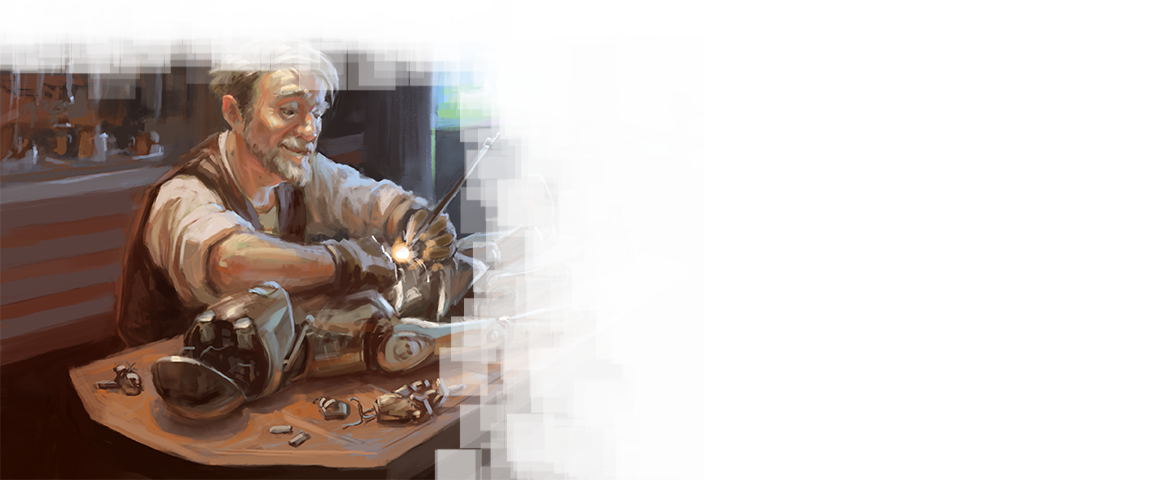
Modern Actions
In modern worlds, there are some additional actions a character can try to make, which are related to the new gear, electronic and mechanical devices, and vehicles. Here you can find some guidelines for these actions.
Disarming an Explosive
Using an action, a character can try to disable a planted explosive making a Dexterity check. If the character is also proficient with the engineering kit, it can add its proficiency bonus to the check if it have the kit at hand.
The DC for disarming an explosive varies depending on different factors, which are shown in the table below.
Disarming an Explosive
| Factors | DC modifier |
|---|---|
| The detonator type is unknown | 18 |
| The detonator type is known | 12 |
| The explosive was set by someone with the Sapper feat | + half the proficiency bonus of the creature who planted it |
| The explosive uses an improvised detonator | -1d6 |
A character can try to determine the detonator type from a safe distance making a DC 15 Intelligence (Investigation) check.
On a success, the detonator is destroyed, the explosive is safetly deactivated and it can be recovered for later use. If a character succeeds the check by 5 or more, the detonator can be recovered too. On a failure, the explosive is detonated.
Repairing a Device
Most repair checks are made to fix complex electronic or mechanical devices. Using an engineering kit allows the character to add it's proficiency bonus if it's proficient with the tool. The DC is set by the DM. In general, simple repairs have a DC of 5 to 10 and require no more than a few minutes to accomplish, while complex repairs have a DC of at least 15 and can require an hour or more to complete.
Up to the DM, in some cases repairing a device might also involve a monetary cost when spare parts or new components are needed. The value of this parts in credits are equal to the total DC.
Disabling a Device
Most of the time, for manually disabling an electronic device just requires to press the power button or unplugging it, but other devices are more complex to disable. In this cases, a character can try to cut or replace wires, change some switches, remove a battery or gears, and so on.
In the following table you can find some devices and the suggested DC for disabling them.
Disabling a Device
| Device | DC |
|---|---|
| Electric Fence | 10 |
| Elevator | 12 |
| Turnstile | 12 |
| Motion Sensor | 12 |
| Security Camera | 12 |
| Electronic Door Lock | 15 |
| House Alarm | 20 |
| Office or Store Alarm | 25 |
| Bank Vault | 28 |
A character can use an action to try to manually disable a device. It must be able to reach the device or the power source to do so. The DC for this is determined by the DM depending on the device (disabling a bank vault is far more difficult than disabling an average security camera). If the character is also proficient with the engineering kit, it can add its proficiency bonus to the check if it have the kit at hand.
If the device is being constantly monitored, the attempt to disable it will probably be noticed by the security personnel.
Manually Disabling or Hacking?
Some devices might be able to be disabled manually or by hacking them, and it's up to the DM to determine which action can be used (either or both).
In other cases, some high security devices might have multiple layers of protection, such as a casino vault, and in those cases it will probably require characters to both manually disable and hack the device in order to fully disable or access to it.
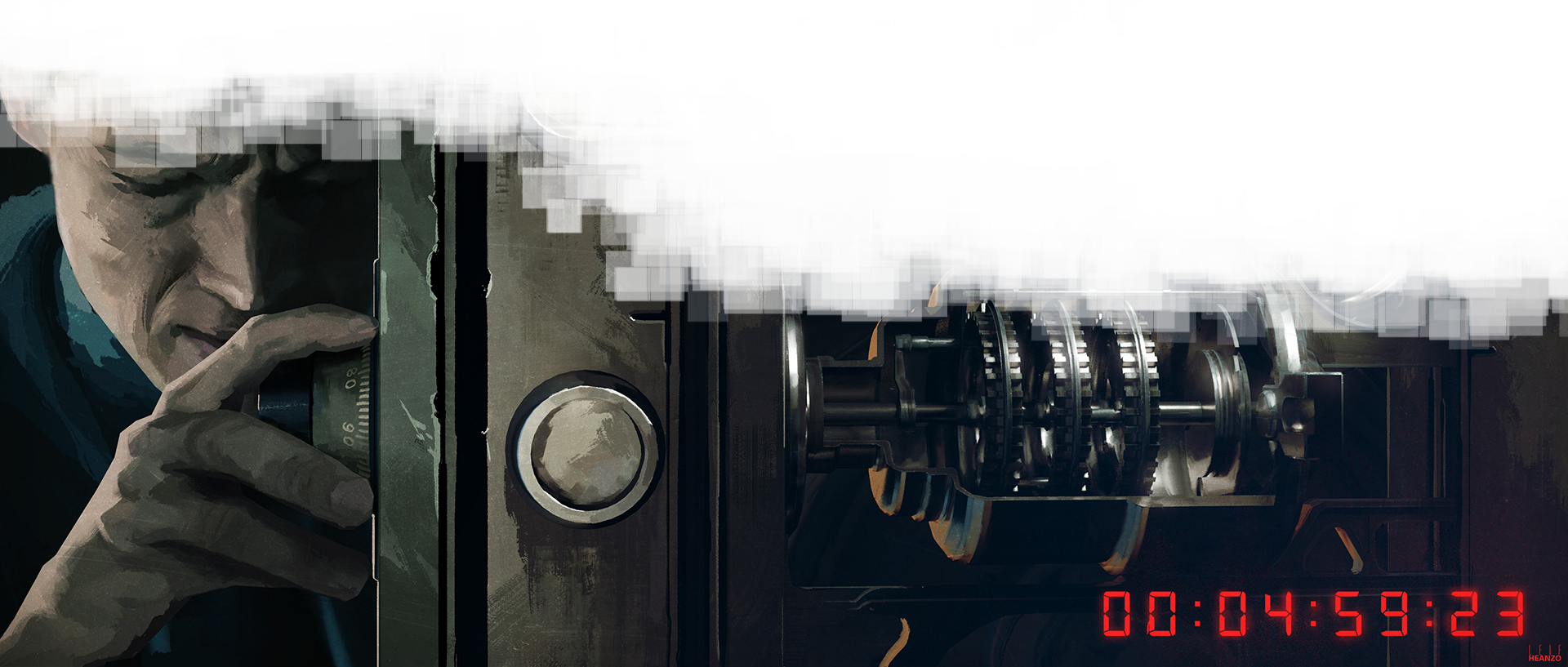
Hacking a Device
In general, normal computer operations don't require a check. However, there are some particular actions that require the character to make an Intelligence check when trying to search a file in an unfamiliar network, when trying to defeat the device security, operate a device remotely or altering existing programs.
Defeat the Device Security
When connecting to an electronic device, there is a chance it's protected by a security program or protocols that are installed to defend the system and preventing unauthorized access.
Using an action, a character can try to disable a the security and gain access by making an Intelligence check. If the character is also proficient with the hacking tools, it can add its proficiency bonus to the check if it have the tools at hand.
The DC is determined by the quality of the security program installed, as shown in the table below.
| Security Level | DC |
|---|---|
| Minimum | 15 |
| Average | 20 |
| Exceptional | 25 |
| Maximum | 30 |
On a success, the character can log in into the device system. On a failed check, the security system immediately alerts its administrator that there has been an unauthorized entry attempt. An alerted administrator may try to identify the character or cut off the character's access to the system making a contested Intelligence check using hacking tools. If the character succeeds, the administrator attempt fails and the character can make another check to try to defeat the device security again. If the character fails, its session ends and it must wait at least 24 hours for doing this check again.
Operating a Device
If a character has access to a device, it can try to do different actions for finding files, shutting down devices, change parameters or passcodes, and so on. As an action, a character can make an Intelligence check to operate a device. The DC and time required depends on the nature of the operation. If the character is also proficient with the hacking tools, it can add its proficiency bonus to the check if it have the tools at hand.
If the character fails the check, it can try to make a new check again. In most of the cases, if a character fails a check by 5 or less, the system immediately alerts its administrator that there has been an unauthorized use of the equipment, while devices or systems with a high security will always alert on a failure. An alerted administrator may attempt to identify the character or cut off the character's access to the system making a contested Intelligence check using hacking tools (see the "Defeat the Device Security" section for more information).
Operating a Device
| Type of Action | DC | Time Required |
|---|---|---|
| Change credentials or passcodes | 20 | 1 minute |
| Covering Tracks | - | 1 minute |
| Damage programming | 15 | 1 minute |
| Destroy programming | 20 | 5 minutes |
| Find or scan for data | ||
| Personal device | 10 | 1 round |
| Small network | 15 | 1 minute |
| Large network | 20 | 5 minutes |
| Massive network | 25 | 10 minutes |
| Reset parameters | 10 | 1 minute |
| Shut down | 15 | 1 round |
Change credentials or passcodes. This allows to modify credentials from any registered user in the device or network, or to change passcodes (such as the electronic door code or a computer log-in password). The time required is per credential or passcode.
Covering Tracks. Spending 1 minute, you can make an Intelligence check using the hacking tools to alter your identifying information. The administrator must make an Intelligence check (DC equals to the check you made before) first to uncover your tracks before attempting to identify or cut off your access. You can make this check only once on the device you are currently connected.
Damage Programming. This imposes disadvantage on all checks made with the device until repaired, which can be done by making an Intelligence check against the result of the damage programming check.
Destroy Programming. This make the device unusable until the programming is repaired by making an Intelligence check against the result of the destroy programming check.
Find or scan for data. This allows a character to search for a specific file, folder or program within a device or a network. This check can reveal the data type, if it's protected by a password, encryption, and such. The time required is for each data search.
Reset parameters. This change all configuration of a device to its default values, allowing it to reconfigure all the parameters from scratch. This action doesn't delete any data or file, and the time required is per device.
Shut down. This simply shut downs a device, such as cameras, door locks, motion detectors and alarms. The time required is per device.
Accessing Through Internet
If you are not able to physically access to a device, you must find the address making an Intelligence (Investigation) check first, and then defeat the device security (if any). The DC for searching the address is determined by the DM (for example, finding the address of a military computer is harder than finding the address of a domestic computer).
Malwares
A malware is a software designed to cause disruption to a computer, server, client, or computer network, leak private information, gain unauthorized access to information or systems, deprive users access to information or which unknowingly interferes with the user's computer security and privacy. Most common malwares are viruses, worms, trojans, botnets, spywares and rootkits.
Creating a Malware
Due the complexity of creating a malware, only the most experienced characters can create some of them. The character level determines the maximum rarity of the malware it can create, as shown in the table below.
| Character Level | Maximum Malware Rarity |
|---|---|
| 1st | Common |
| 3rd | Uncommon |
| 7th | Rare |
| 10th | Very Rare |
For creating a malware, the character must be proficient with the hacking tools and use them during the whole process. In addition, it must have access to at least a mid-range computer to program the malware. After it's created, it can be copied into a USB flash drive for transporting it.
When programming the malware, the character must choose how the malware is triggered or activated, such as through an email attachment, a modified application, a download link, or a website download. After being triggered, the malware stays active until is deleted by making an Intelligence check.
Malware Rarity
The malware rarity determines the number of slots it can have and the base DC required to detect and delete the malware.
| Malware Rarity | Maximum slots | Base DC |
|---|---|---|
| Common | 1 Slot | 10 |
| Uncommon | 2 Slots | 13 |
| Rare | 3 Slots | 16 |
| Very rare | 4 Slots | 20 |
The number of slots used determines the time required for creating it. Multiple characters can combine their efforts. Divide the time needed to create a malware by the number of characters working on it. As a general rule, the number of characters that can work on the same malware cannot exceed the number of features used. Still, the DM have the last word when deciding how many characters can work on each malware.
| Malware Slots Used | Time to Create |
|---|---|
| 1 Slot | 1 day |
| 2 Slots | 3 days |
| 3 Slots | 1 workweek |
| 4 Slots | 2 workweeks |
Malware Features
The malware feature includes every task is programmed to do, but also any other enhancements incorporated to the malware. Each feature uses a number of slots, which are described in the Malware Features table.
Malware Features
| Feature | Description | Slots Required |
|---|---|---|
| Damage Programming | This imposes disadvantage on all checks made with the device until repaired, which can be done by making an Intelligence check against the malware DC | 1 |
| Destroy Programming | This make the device unusable until the programming is repaired by making an Intelligence check against the malware DC | 2 |
| Steal Data | The malware is programmed to find specific data, copy, and upload it to a secure server where they can be downloaded | 1 |
| Modify Data | The malware is programmed to find specific data and modify their properties or content (if applicable) | 1 |
| Destroy Data | The malware is programmed to find specific data and delete it from the device or network | 1 |
| Encrypt Data | The malware is programmed to find specific data and encrypt it with an algorithm, making that data accessible only when using an encryption key | 1 |
| Install backdoor | The malware creates a vulnerability that helps to access the device easily. The character have a +5 bonus when attempting to defeat the device security while the malware is active | 1 |
| Spy | The malware saves the internet activity, tracking log, password information, accounts, and such. This information is generally uploaded to a secure server where it can be viewed or downloaded | 2 |
| Remote Control | The malware allows total control of the device | 2 |
| Replicating | Due to rapidly replicating itself for infecting files and data, its harder to completely delete it from the system. It's required two successful Intelligence checks to fully delete the malware from a device | 1 |
| Cloak | The malware is installed by modifying the operating system to avoid being detected. The malware DC increases by 2, and the character have a +5 bonus when attempting to do the covering tracks operation | 1 |
Vehicles
In modern settings, cities, towns and roads are filled with vehicles used by the population to move from one location to another, to transport goods, or any other activity. Most adult individuals in a modern world can drive ground vehicles.
Vehicles Rules
In this section you will find new rules for vehicles and their statistics. Vehicles are immune to all conditions and to necrotic, poison, psychic and radiant damage.
When a vehicle is stationary, a character can get in or out of using half of its walking speed. Lowering and rising a glass window takes a bonus action
Vehicles have a top speed, which indicates the maximum speed the vehicle can achieve. Additionally, vehicles have an acceleration speed, which determines the maximum speed you can increase or decrease on each turn without making a check.
Passengers. This number indicates the number of small or medium passengers (in addition to the driver) the vehicle is designed to carry. Vehicles can use that space to carry additional cargo when passengers aren't present. Each unused passenger slot allows the vehicle to carry an additional 100 pounds of cargo.
Cargo. This number indicates the maximum amount of cargo the vehicle is designed to carry. Some vehicles can carry extra passengers instead of cargo, but doing so is usually a cramped, uncomfortable, and often unsafe experience for those passengers. As a rule of thumb, one additional passenger can be carried for each 250 pounds of unused cargo capacity.
Damage Threshold. A vehicle has immunity to all damage unless it takes an amount of damage equal to or greater than its damage threshold, in which case it takes damage as normal. Any damage that fails to meet or exceed the damage threshold is considered superficial and doesn't reduce the vehicle's hit points.
Hit Points. A vehicle reduced to 0 hit points is considered non-functional. If a vehicle is reduced to 0 hit points and there is damage remaining, it burst into flame if that remaining damage equals or exceeds half the vehicle maximum hit points, dealing 4d6 fire damage to every creature that moves through the vehicle or starts its turn inside the vehicle. A vehicle with 0 hit points can't accelerate, and it decreases its speed up to its acceleration speed on each turn until it reaches 0.
Vehicle Weapons
While everyone carrying a weapon can shoot from inside a vehicle, military vehicles generally come with weapons ready for using.
The wheeled APC comes with a light machinegun in a ring mount at the top which an occupant can fire (the ring mount count as the bipod accesory, and it allows the gun to traverse 360 degrees).
The military helicopter comes with two light machineguns mounted on the sides, which are controlled and fired by the copilot.
Vehicles
| Name | Cost | Top Speed |
Acceleration Speed |
Passengers | Cargo | AC | HP | Damage Threshold |
|---|---|---|---|---|---|---|---|---|
| Ground Vehicles | ||||||||
| Motorcycle | $5,000 | 270 ft. | 90 ft. | 1 | — | 13 + Dex modifier | 22 | 4 |
| Sedan | $15,000 | 255 ft. | 85 ft. | 4 | 300 lb. | 13 + Dex modifier | 40 | 8 |
| Sports car | $40,000 | 315 ft. | 105 ft. | 1 | 200 lb. | 13 + Dex modifier | 34 | 8 |
| SUV | $25,000 | 210 ft. | 70 ft. | 4 | 500 lb. | 14 + Dex modifier (max 2) | 50 | 10 |
| Pickup | $22,000 | 180 ft. | 60 ft. | 3 | 1,600 lb. | 14 + Dex modifier (max 2) | 50 | 8 |
| Van | $20,000 | 165 ft. | 55 ft. | 8 | 4,800 lb. | 13 + Dex modifier (max 2) | 50 | 8 |
| Truck | $40,000 | 120 ft. | 40 ft. | 2 | 33,000 lb. | 15 | 70 | 10 |
| Wheeled APC | $60,000 | 180 ft. | 60 ft. | 13 | 250 lb. | 16 + Dex modifier (max 2) | 70 | 12 |
| Air Vehicles | ||||||||
| Helicopter, civilian | $100,000 | 255 ft. | 85 ft. | 4 | 250 lb. | 12 + Dex modifier | 38 | 8 |
| Helicopter, military | $175,000 | 330 ft. | 110 ft. | — | 100 lb. | 16 + Dex modifier (max 2) | 50 | 10 |
| Helicopter, transport | $130,000 | 210 ft. | 70 ft. | 13 | 5,000 lb. | 10 + Dex modifier | 40 | 8 |
| Prop Plane, civilian | $110,000 | 225 ft. | 75 ft. | 3 | 120 lb. | 12 + Dex modifier | 40 | 8 |
| Prop Plane, transport | $125,000 | 210 ft. | 70 ft. | 10 | 10,000 lb. | 12 + Dex modifier | 45 | 8 |
| Water Vehicles | ||||||||
| Personal Watercraft | $6,000 | 150 ft. | 50 ft. | 1 | 60 lb. | 13 + Dex modifier | 20 | 4 |
| Runabout | $25,000 | 105 ft. | 35 ft. | 5 | 2,100 lb. | 13 + Dex modifier | 30 | 6 |
| Cabin Cruiser | $40,000 | 120 ft. | 40 ft. | 3 | 2,100 lb. | 13 + Dex modifier | 40 | 8 |
Repairing a Vehicle
Repairs to a damaged vehicle can be made using the mechanic tools, and it's usually made in a car workshop. A character can repair a number of hit points equal to 1 + its Intelligence modifier per day and costs $100 for material and labor (minimum of 1 hit point).
Controlling the Vehicle
In general, while driving or piloting a vehicle a character don't need to roll for maintaining control of the vehicle, but there are some moments where the driver or pilot can (or must) make a maneuver in the vehicle, such as doing a sharp turn for dodging an obstacle or for resisting a ram. When this happens, the driver or pilot must use its action (or reaction in case of getting rammed) and make a Dexterity check to successfully doing the maneuver. If it's also proficient with the vehicle, it can add its proficiency bonus to the check.
On a failed check, the driver or pilot immediately lose control of the vehicle.
Here're some situations that requires a Dexterity check for doing a maneuver.
| Maneuver | DC |
|---|---|
| Accelerate or decelerate | Varies |
| Resisting a ram | Varies |
| Sharp turn | 13 |
| Bootleg turn | 15 |
| Do a jump (ground and water vehicles only) | 15 |
| Taking off and landing (air vehicles only) | 17 |
| Aerobatic maneuver (air vehicles only) | 20 |
| Weather | |
| Bad weather | +3 |
| Very bad weather | +5 |
Accelerate or decelerate
There are three main ways to increase or decrease the speed while driving or piloting a vehicle.
- The driver or pilot can use its action to increase or decrease the speed up to the acceleration speed.
- The driver or pilot can use its action to increase or decrease the speed up to twice the acceleration speed by making a Dexterity check (DC 10).
- The driver or pilot can use its action to increase or decrease the speed up to three times the acceleration speed by making a Dexterity check (DC 15), allowing the driver to achieve the top speed in just 1 turn.
Losing Control
While the vehicle is moving out of control, there is a chance of having an accident. At the beginning of the driver or pilot turn, it must roll a dice and compare the result with the corresponding table, which depends on what type of vehicle is. If the vehicle doesn't crash, the driver or pilot can use its action on each turn and make a Dexterity check (DC 12) to regain control of the vehicle.
Losing Control (Ground and Water)
| d8 | Result |
|---|---|
| 1 | The vehicle decreases its speed up to its acceleration speed |
| 2 | The vehicle turns left, decreasing its speed up to its acceleration speed |
| 3 | The vehicle turns right, decreasing its speed up to its acceleration speed |
| 4 | The vehicle spins out of control, decreasing its speed up to twice its acceleration speed |
| 5 | The vehicle turns left, decreasing its speed up to its acceleration speed and then crashes |
| 6 | The vehicle turns right, decreasing its speed up to its acceleration speed and then crashes |
| 7 | The vehicle impacts something and crashes |
| 8 | The vehicle start rolling as it crashes, decreasing its speed up to its acceleration speed. The vehicle and its occupants takes 3d6 bludgeoning damage on each turn until the speed reaches 0 |
Losing Control (Air)
| d8 | Result |
|---|---|
| 1-2 | The vehicle turns left, decreasing its speed up to its acceleration speed |
| 3-4 | The vehicle turns right, decreasing its speed up to its acceleration speed |
| 5 | The vehicle tilts up, decreasing its speed up to twice its acceleration speed |
| 6-7 | The vehicle tilts down, increasing its speed up to twice its acceleration speed while descending |
| 8 | The vehicle spins out of control while falling out, increasing its speed up to its acceleration speed |
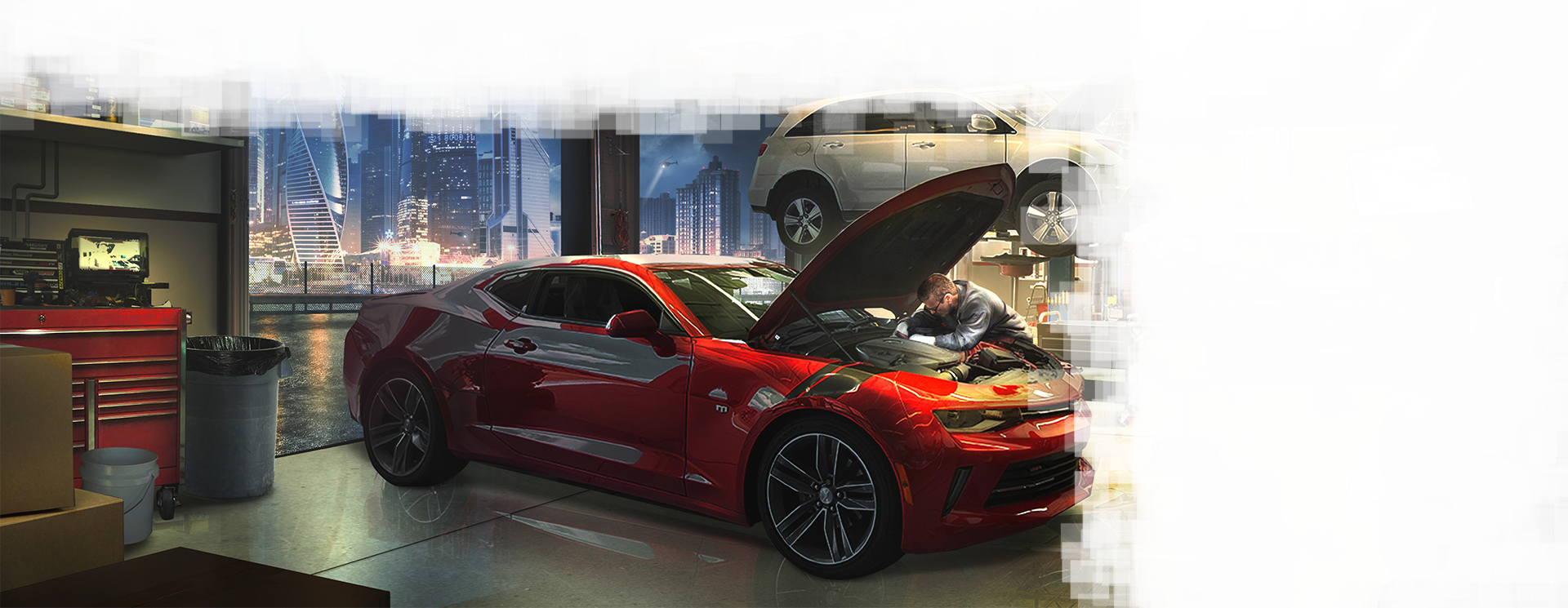
Crashing
When a driver or pilot loses control of the vehicle, it's very probable that a crash occurs. When it happens, the vehicle and its occupants take bludgeoning damage depending on the speed of the vehicle, as shown in the table below. Any occupant using seat belts takes only half of the damage (this includes the damage if the vehicle rolls as it crashes).
Crash Damage
| Crashing Speed | Damage |
|---|---|
| 30 or less | 1d8 |
| 31-50 | 2d8 |
| 51-70 | 3d8 |
| 71-90 | 4d8 |
| 91-110 | 5d8 |
| 111-130 | 6d8 |
| 131-150 | 7d8 |
| 151-170 | 8d8 |
| 171-190 | 9d8 |
| 191-210 | 10d8 |
| 211-230 | 11d8 |
| 231-250 | 12d8 |
| 251-270 | 13d8 |
| 271-290 | 14d8 |
| 291-310 | 15d8 |
| 311 or more | 16d8 |
As a reaction, the occupants can try to escape the vehicle before it crashes by making a Dexterity (Acrobatics) check (DC 20). On a success, they escape taking half damage and they are considered knocked prone. In addition, occupants of an air vehicle can try to jump out of the vehicle while wearing a parachute to avoid taking damage from the crash.
Parachutes and Height
A Parachute requires a minimum altitude to be fully deployed. A character takes no fall damage when deploying a parachute at 300 feet or higher altitude. It takes half falling damage when deploying a parachute between 300 and 200 feet, and full falling damage if the parachute is deployed at 200 feet or lower.
Vehicle Combat
When it comes to combat while driving, things can come out of hands very quickly. Here are some additional rules for making this encounters more interesting and dangerous.
- When making a ranged attack, you can target the vehicle or the occupants.
- The driver or pilot has disadvantage on attack rolls while the vehicle is moving, and it can only use one handed weapons while driving or piloting. Reloading a weapon while driving or piloting takes an action and it requires a Dexterity check (DC 10) to avoid losing control.
- In ground vehicles, if the passengers wants to make an attack using a ranged weapon or spell against a target who is located out of the windows view range, they can unfasten their seat belt and lean out of the window for shooting any target they can see. It takes a bonus action to fasten or unfasten a seat belt.
- Up to the DM, a vehicle can grant half cover to its occupants who are inside.
Ramming
The driver or pilot can move its vehicle to an adjacent space of the target (usually other vehicle) and ram it with using an action. The character makes a single melee attack, adding its Dexterity modifier and proficiency bonus if it's proficient with the vehicle, dealing bludgeoning damage on a hit. If the character is ramming a vehicle, the target's driver or pilot must make a Dexterity check to maintain control of the vehicle (the DC equals to the total damage dealt).
The damage dealt equals to two damage dices based on the vehicle's damage threshold plus the character Dexterity modifier. For example, a Sedan ramming another car will deal 2d8 plus the driver's Dexterity modifier. When ramming a static target, use the crash damage table to determine the damage instead. It's up to the DM to decide if the vehicle also takes damage when ramming, if the speed is reduced after the ram, or if the driver or pilot must make a Dexterity check for maintaining control of the vehicle.
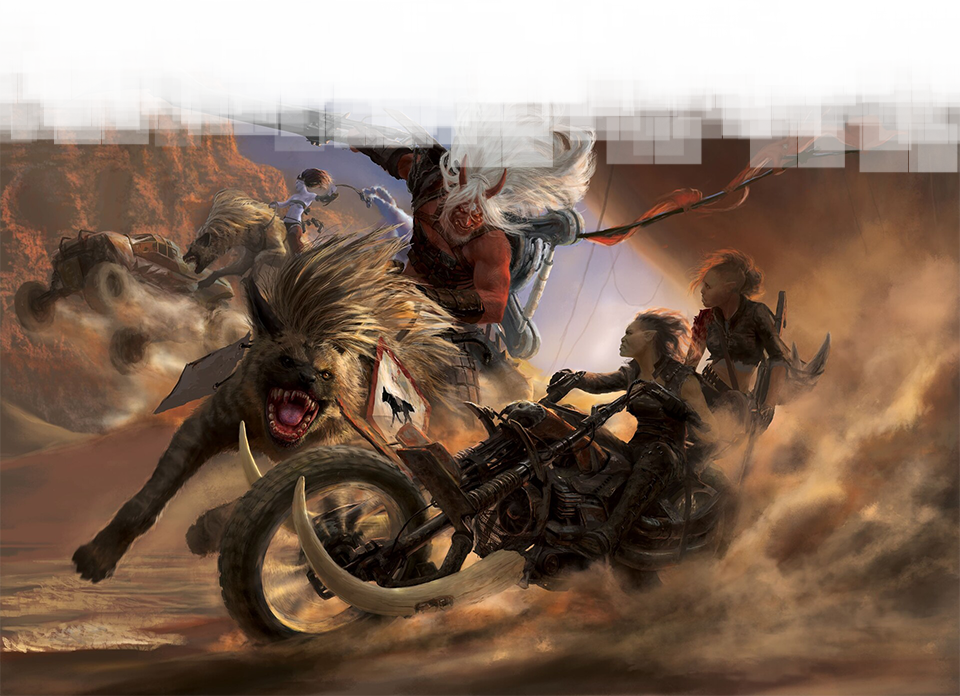
Renting a Vehicle
While buying a vehicle might be expensive, there are vehicle agencies that rents vehicles (mostly automobiles) for short periods of time to the public. These are generally located near airports or busy city areas. The vehicle availability is generally limited to the most common vehicles (sedan, SUV, and pickup vehicles), but the DM can decide if a vehicle rental agency have some expensive or uncommon vehicles available (which can also includes modded vehicles).
A character can pay 10% of the vehicle's total cost for renting a vehicle for 7 days. In addition, if the vehicle is not returned before the time expires, the character must pay 1% of the total cost of the vehicle for each day it was used.
Any damage dealt to the car must be repaired before returning it to the vehicle agency.
Vehicle Modifications
Vehicles can be modified with different parts for improving their stats, such as a better engine or a reinforced body for more durability. Since not every vehicle have the same silhouette, size or components, the cost of each upgrade is a percentage of the base cost of the vehicle you are modifying rather than a fixed value.
You can add a modification to a vehicle only once, and some modifications are only available for some vehicles.
Vehicle Modifications
| Modification | Cost |
|---|---|
| Brakes | 10% |
| Bulletproof Glass | 5% |
| Engine | 20% |
| Reinforced Body | 20% |
| Security Upgrade | 5% |
| Smuggling Upgrade | 5% |
| Suspension | 10% |
| Tires | |
| Offroad | 5% |
| Track | 5% |
| Transmission | 10% |
Brakes. A vehicle with improved brakes allows better handling for reducing the speed or stopping a vehicle. When decelerating, the driver or pilot can decrease the speed up to twice the acceleration speed without making a Dexterity check. In addition, it can decrease the speed up to three times the acceleration speed by making a Dexterity check (DC 10)
Bulletproof Glass. Instead of providing no protection, all glass on the vehicle is now considered to be full cover. Because of this, occupants inside the vehicle can only shoot if the glass are lowered.
Vehicle compatibility: Ground, air, and water vehicles but motorcycles and personal watercrafts.
Engine. Improves the engine for more power. The top speed of the vehicle increases by 1 time the base acceleration speed.
Reinforced Body. A reinforced body allows the vehicle to withstand more damage before becoming non-functional. A vehicle with this modification increases its hit points by half of its base HP (rounded up).
Security Upgrade. Replaces all the locks on the vehicle with a customizable electronic lock, which can be set up to unlock it only when the vehicle owner's smartphone is nearby, by using a password, or any other similar method. A character trying to lockpicking the doors or the startup system of a vehicle with this modification must make a Dexterity (Sleight of Hand) check first (DC 20).
Smuggling Upgrade. Upgrades the vehicle with two onboard hidden compartments to to conceal a weapon. In addition, the vehicle have one large space hidden somewhere within the vehicle for smuggling purposes, which can hold 12 cubic feet or 300 pounds of gear. Each one of these spaces can be discovered with an Intelligence (Investigation) check (DC 17).
Vehicle compatibility: Ground, air, and water vehicles but motorcycles and personal watercrafts.
Suspension. This upgrade improves handling of the vehicle by allowing it to move smoothly with reduced shock. When making a Dexterity check for controlling the vehicle, reduce the DC by 3. This DC reduction can be added up with the tires upgrade, if applicable.
Tires. Improves handling by adding special tires to the car which provides a better traction on specific surfaces. When making a Dexterity check for controlling the vehicle, reduce the DC by 2 when the vehicle is being driven through the same surface as the tires. A character can change the tires from one type to the other after a short or long rest if it have the mechanic tools at hand. This DC reduction can be added up with the suspension upgrade.
Vehicle compatibility: Ground vehicles only.
Transmission. A transmission upgrade increases the acceleration. A vehicle with this modification doubles it's acceleration base speed.
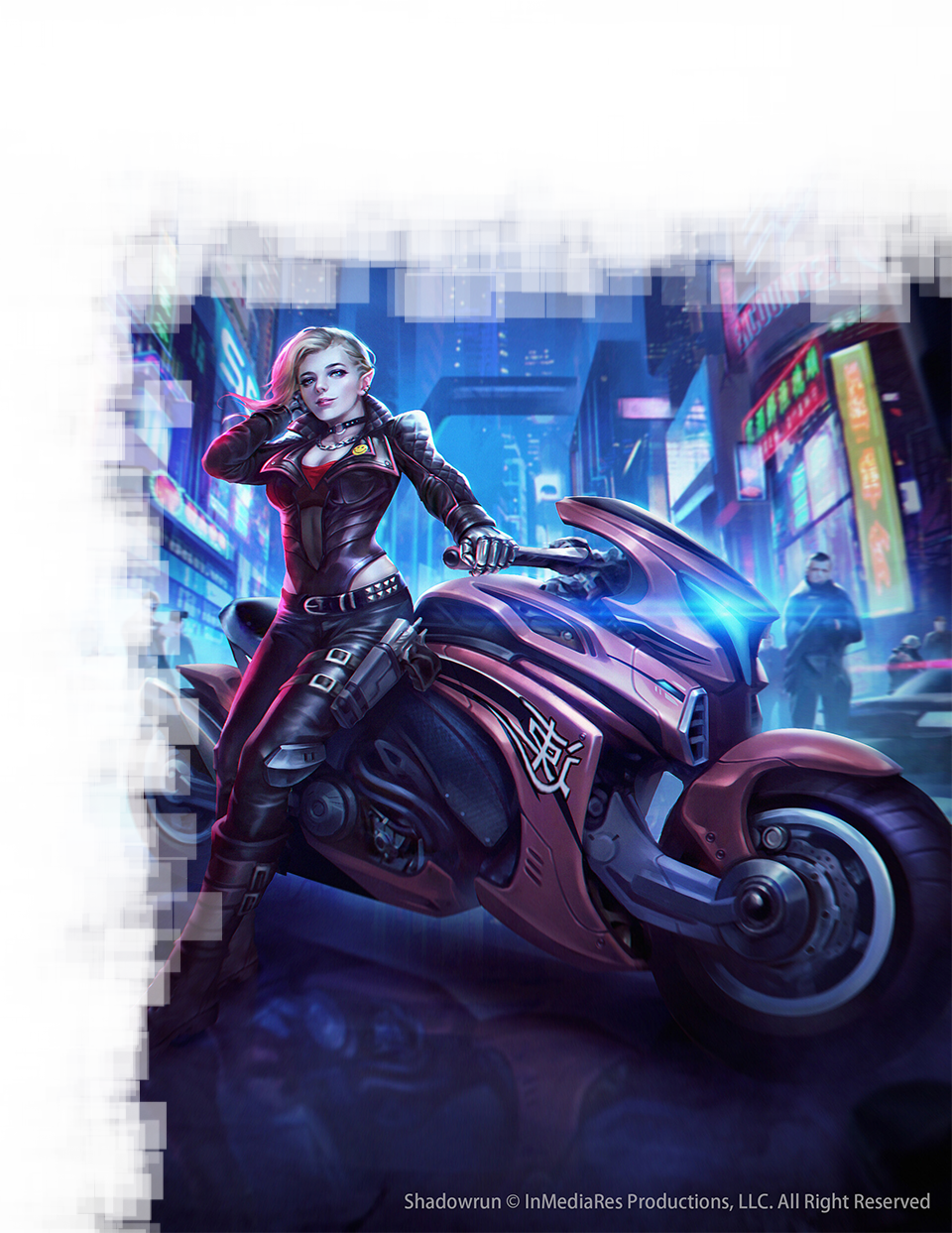
Lifestyle
Lifestyle expenses provide you with a simple way to account for the cost of living. They cover your accommodations, food and drink, and all your other necessities. Furthermore, expenses cover the cost of maintaining your equipment so you can be ready when adventure next calls.
Living in modern worlds is generally more costly than medieval ones. The lifestyle table shows the cost of living divided in various categories which represents the financial condition and social class of a modern society.
Lifestyle
| Lifestyle | Price/Day |
|---|---|
| Poor | — |
| Lower class | $14 |
| Middle class | $24 |
| Upper class | $54 minimum |
Poor. A poor lifestyle means having few material possessions or little income. You probably sleep on temporary shelters or emergency accommodations, but you spend most of your time in the streets, eating fast food, and relying on the good graces of people better off than you. This lifestyle is surrounded by violence, diseases, hunger, and crime. People at this lifestyle level tend to be unskilled laborers, peddlers, and other disreputable types.
Lower Class. A lower class lifestyle keeps you out of the slums and ensures that you can maintain your equipment. You live in an older part of the city, renting a studio apartment or a small condo. You don't go hungry or thirsty, and your living conditions are clean, if simple. Ordinary people living this lifestyles are mostly workers who performs manual labor (known also as blue-collar workers).
Middle Class. A middle class lifestyle means that you can afford nicer clothing and can easily maintain your equipment. You live in a medium condo in a middle-class neighborhood or in a small house in the peripheral areas of the city or town. Most people living this lifestyle includes professionals with training and education, typically business qualifications and university degrees, with example occupations including academics and teachers, social workers, engineers, accountants, managers, nurses, and middle-level administrators.
Upper Class. An upper class lifestyle is composed by people who hold the highest social status, usually are the wealthiest members of class society, and wield the greatest political power, such as successful entrepreneurs, CEOs, politicians, investment bankers, venture capitalists, heirs to fortunes, celebrities, and a few number of professionals. You live in a large condo or a large home in a good neighborhood of the city, and there is a high chance you have additional properties in other cities or locations.
The elite is also included in this lifestyle, which is a small group of powerful people who hold a disproportionate amount of wealth, privilege, political power, or skill, known for being the top part of the upper class.
Modern Wages
People in modern worlds are generally more trained, have access to information, studies, and more, which can be translated in better paid jobs. Here are some suggestions on how much an individual should earn each day for maintaining a specific lifestyle. This values considers paying rent, buying food, using transportation, and an extra for additional expenses or savings.
Modern Wages
| Lifestyle | Daily wage |
|---|---|
| Lower class | $20 |
| Middle class | $30 |
| Upper class | $70 minimum |
Here are some additional modern expenses fitted for a modern-themed campaign.
Modern Expenses
| Item | Cost |
|---|---|
| Lodging (per day) | |
| Hostel | $5 |
| Budget motel | $10 |
| Average hotel | $30 |
| Upscale hotel | $60 |
| Meals (per day) | |
| Fast food | $5 |
| Family restaurant | $10 |
| Upscale restaurant | $20 |
| Fancy restaurant | $30 |
| Housing (per day) | |
| Small condo | $5 |
| Medium condo | $10 |
| Large condo | $30 |
| Small house | $10 |
| Medium house | $15 |
| Large house | $40 |
| Ground Transportation | |
| Public transport (within the city) | $2 |
| Taxi or app-taxi (within the city) | $5 |
| Bus fare (between cities) | $0,5 per mile |
| Car rental | Varies |
| Air Transportation | |
| Domestic, coach | $2 per mile |
| Domestic, first class | $4 per mile |
| International, coach | $8 per mile |
| International, first class | $12 per mile |
| Water Transportation | |
| Ship's passage | $1 per mile |
| Cruiser's fare | $3 per mile |
PART 3
New Spells
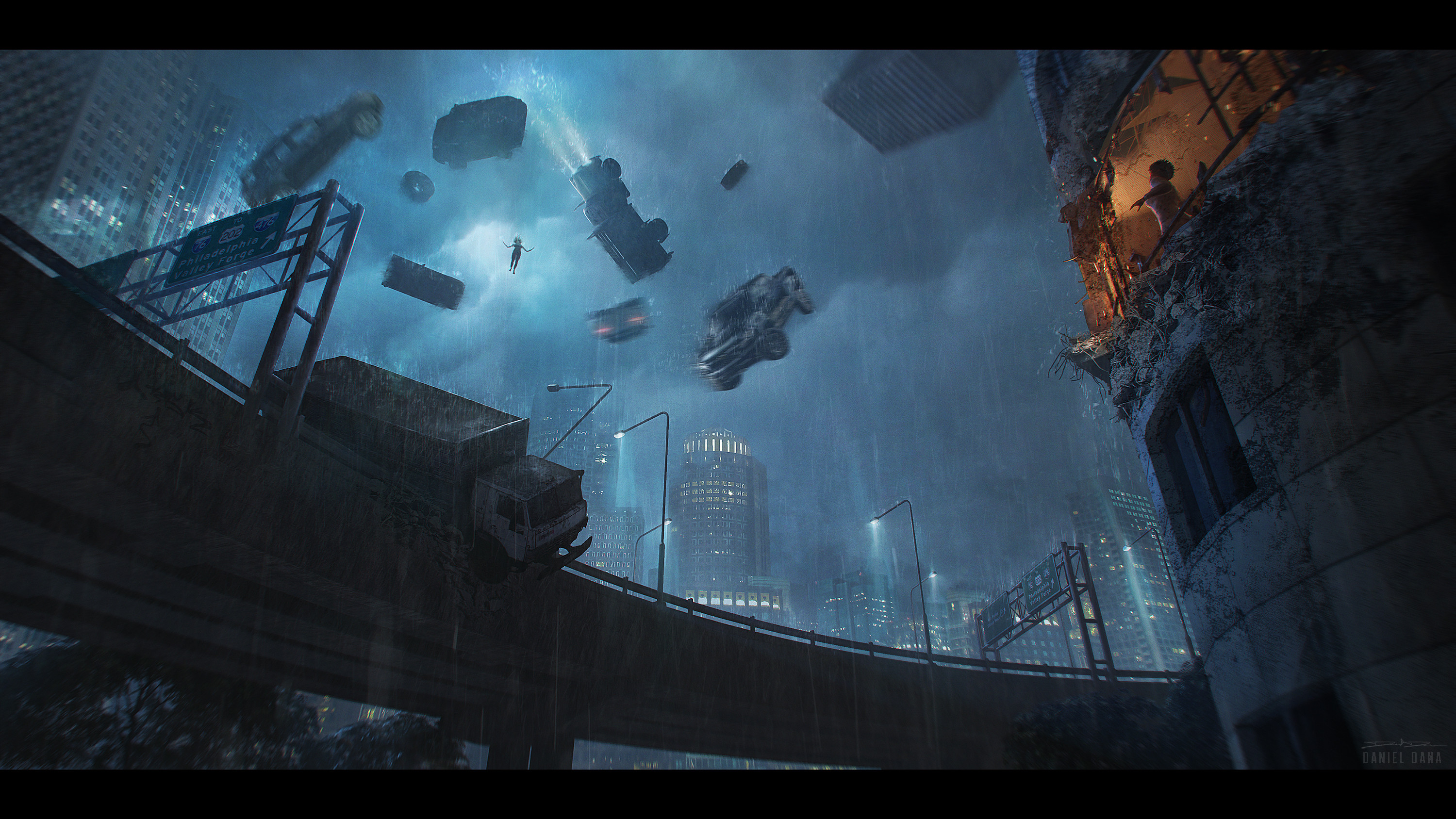
New Spells
This part describes spells for a modern setting. These spells are all suitable for the artificer, sorcerer, warlock, or wizard spell lists.
Certain of the spells in this section have a special tag: technomagic. Such spells are cast normally, but the technomagic tag indicates that their magic specifically references and interacts with computer systems and electronic devices.
Cantrips (0 Level)
Arcane Graffiti
Haywire
Magic ID
1st Level
Degauss
Power Device
Machine Invisibility
2nd Level
Burglar's Buddy
Dataread
Relay Text
3rd Level
Electromagnetic Pulse
Shutdown
4th Level
Wire Walk
5th Level
Instant Connectivity
Synchronicity
Spells Descriptions
The spells are presented in alphabetical order.
Arcane Graffiti
Conjuration cantrip
- Casting Time: 1 action
- Range: Touch
- Components: V, S
- Duration: 1 hour
This spell allows you to inscribe your personal rune or a short message, which can be no larger than 2 feet tall and consist of no more than six words, on a nonliving creature or object. The writing can be visible or invisible. An arcane graffiti spell enables you to etch the words upon any substance (even stone or metal) without harming the material upon which the mark is placed. If invisible graffiti is made, the casting of any spell within 30 feet causes the words to become visible for 5 rounds.
Burglar's Buddy
2nd-level illusion (technomagic)
- Casting Time: 1 action
- Range: Self (10-foot radius)
- Components: V, S, M (a camera lens cover)
- Duration: 1 minute
You create a magical area around you, suppressing all mechanical or electronic intrusion alarms and alarms sensors in the area. Burglar alarms or other intrusion alarms within the affected area simply fail to function; sensors for intrusion alarm systems (such as motion detectors, IR detectors, pressure sensors, electric eyes, and so forth) also fail to function, sending no signal to monitoring stations. Video surveillance devices stop sending whatever the image they were photographing the moment when the spell was cast.
Dataread
2nd-level divination (technomagic)
- Casting Time: 1 action
- Range: Touch
- Components: V, S
- Duration: Concentration, up to 1 minute
You run your finger over any machine-readable data source (a barcode, a computer disk, a USB drive, or any similar record) to understand the content of the data. You experience the data as it would normally be experienced through an appropriate machine. For example, if reading a USB with music, you hear the music in your head. If reading a word processor file, you visualize and read an image of the page. If reading a barcode, you see the serial number, pricing information, or other barcoded data.
The amount of time required to experience the data is the same as that required to read it by conventional means. You can normally read 2 pages of documents in 1 minute. This spell does not decode encrypted data. Without the encryption code, an encrypted document or file appears as a seemingly random string of characters. If you know the encryption code, however, you can read encrypted data normally with this spell.
At Higher Levels: When you cast this spell using a spell slot of 3rd or 4th level, you can maintain your concentration on the spell for 10 minutes. When you use a spell slot of 5th level or higher, you can maintain your concentration on the spell for 1 hour.
Degauss
1st-level transmutation (technomagic)
- Casting Time: 1 action
- Range: Touch
- Components: V, S
- Duration: Instantaneous
By touching a single device that contains electronic files, such as a computer, external hard drive, USB flash drive, or magnetic disk, you erase all files on that device. The device is rendered empty of data.
Electromagnetic Pulse
3rd-level evocation (technomagic)
- Casting Time: 1 action
- Range: 30 feet
- Components: V, S
- Duration: Instantaneous
When you cast this spell, you send a powerful burst of energy that ruins electronic circuitry in a 20-foot cube. Any computer, telephone, television, or other device with a computer processor inside ceases to function immediately, and the contents of hard drives and other storage media are scrambled.
The electromagnetic pulse affects only devices with extensive circuitry, not everything that uses electricity. Ordinarily the lights stay on, although their electronic switches might not function. Automobiles continue to run, although their engines will run more roughly without electronic guidance. Cars with an electronic ignition system won't start after the spell.
Devices affected by this spell can be fixed using an engineering kit.
Haywire
Transmutation cantrip (technomagic)
- Casting Time: 1 action
- Range: 30 feet
- Components: V, S, M (a small magnet)
- Duration: Concentration, up to 1 minute
This cantrip causes a single device to behave randomly and erratically, defying any attempts to bring it under control. Cash registers display random prices and open their money drawers repeatedly. Escalators surge forward, then reverse themselves. Automatic teller machines flash random patrons' account balances on the screen as they spew forth receipts (not money, though).
It's impossible to describe the exact effects of haywire on every modern device. In general, a machine subject to haywire functions as if someone were pressing random buttons or otherwise manipulating it randomly.
Turning off a device subject to a haywire spell doesn't work, because the spell disables the “off” switch. Cutting off the power supply (by unplugging it, for example) disables the device 1d4 rounds later, ending the spell.
This cantrip doesn't disable the devices (for example, a camera might get a static effect but it will continue recording, and a door with an electronic lock might not be openable while is under the effects of this cantrip)
Instant Connectivity
5th-level conjuration (technomagic)
- Casting Time: 1 action
- Range: 10 feet
- Components: V, S, M (a device connected to internet worth at least $100)
- Duration: Instantaneous
With the aid of instant messaging software, you physically transport the subject or subjects from one place to another. If several willing creatures link hands in a circle, up to eight creatures can be affected by the spell at the same time.
At least one of the creatures affected must be touching a computer with Internet connection. The targets must be sent to a specific computer that is currently active online. Instant connectivity causes the targets to appear in the room from which the receiving device is, automatically gaining surprise on anyone else in that room.
You must have seen the receiving device for at least 1 minute from 5 feet or less to be able to target that device.
If any of the devices have some kind of security (or if the device is in a secure network), the spell cannot be casted until the security is disabled (for more information about disabling security, read the "Using Electronic Devices" section).
Machine Invisibility
1st-level illusion (technomagic)
- Casting Time: 1 action
- Range: Touch
- Components: V, S, M (a glass lens, which the caster fogs by breathing on it)
- Duration: Concentration, up to 10 minutes
A creature or object you touch cannot be detected by video cameras, electronic sensors, or other high-tech detection machines for the duration of the spell. Anything the target is wearing or carrying is invisible as long as it is on the target's person. The target remain visible to vision.
At Higher Levels. When you cast this spell using a spell slot of 2nd level or higher, you can target one additional creature for each slot level above 1st.
Magic ID
Illusion cantrip
- Casting Time: 1 action
- Range: Touch
- Components: V, S, M (a small card or slip of paper)
- Duration: Concentration, up to 1 minute
You touch a small card or slip of paper appear to be a valid identification card of your choosing. The card bears your name, likeness, and all other data expected by anyone examining such a card. However, it is only visually accurate and does not contain any valid machine-readable data or electronic coding. You cannot use this spell to make an electronic passkey.
Power Device
1st-level transmutation (technomagic)
- Casting Time: 1 action
- Range: Touch
- Components: V, S
- Duration: Concentration, up to 10 minutes
You touch an electrical or mechanical device that requires a power source. For the duration of the spell, the device functions exactly as it normally would if it had conventional power.
This spell can affect any household or handheld device, or general-purpose vehicle. Larger or more intricate devices cannot be powered with this spell.
Relay Text
2nd-level transmutation (technomagic)
- Casting Time: 1 action
- Range: Unlimited
- Components: V, S
- Duration: Instantaneous
You cause a text message of up to 25 words to appear on the screen of an electronic device capable of receiving such messages, such as a smartphone, tablet, or computer. If the device is turned on, the message appears instantly; if not, the message appears as soon as someone turns it on. The message remains onscreen until read, then disappears, leaving no electronic record of its appearance. You must have seen the device to send a message to it.
Shutdown
3rd-level transmutation (technomagic)
- Casting Time: 1 action
- Range: 30 feet
- Components: V, S, M (the CONTROL, ALT and DELETE keys from a computer keyboard)
- Duration: 1 minute
The spell shuts down all electronic devices in a 15-foot radius centered on a point you can see. When the spell ends, the devices operate again as if their operation had not been interrupted.
At Higher Levels. When you cast this spell using a spell slot of 4th level or higher, the radius increases by 15 feet for each slot level above 3rd.
Synchronicity
5th-level abjuration
- Casting Time: 1 action
- Range: Touch
- Components: V, S
- Duration: Concentration, up to 1 hour
The creature you touch feels reality subtly shifted to its favor while this spell is in effect. The target isn't inconvenienced by mundane delays of any sort. Traffic lights are always green, there is always a waiting elevator, and a taxi is always around the corner. The target can run at full speed through dense crowds, and attacks of opportunity provoked by the target’s movement are made with disadvantage.
Synchronicity grants advantage to Dexterity (Stealth) checks, since the target always finds a handy piece of cover available. Additionally, the target has advantage on all ability checks made to drive or pilot a vehicle.
In the event that two or more creatures under the effect of Synchronicity are attempting to avoid being inconvenienced by each other, the creatures engage in a contest of Charisma each time the effects of the spells would oppose each other.
Wire Walk
4th-level conjuration (technomagic)
- Casting Time: 1 action
- Range: 10 feet
- Components: V
- Duration: Instantaneous
This spell instantly transports up to six willing creatures of your choice that you can see within range to the location of a telephone you call. The telephone must be answered (either by a creature or by an answering machine), and it works only over an open line. You arrive adjacent to the device (within 5 feet of it), and any other creatures transported by the spell appear next to you.
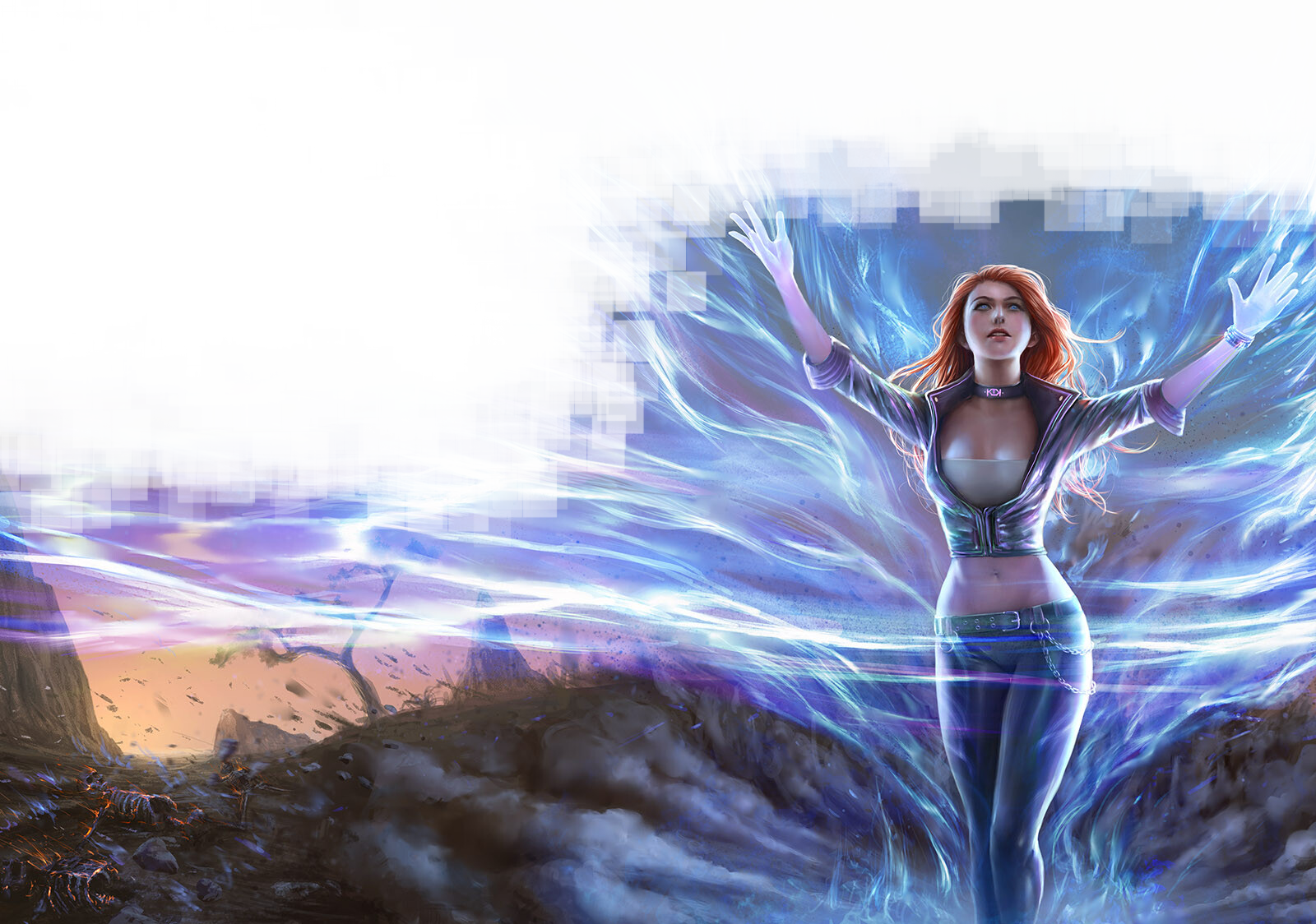
PART 4
New Creatures
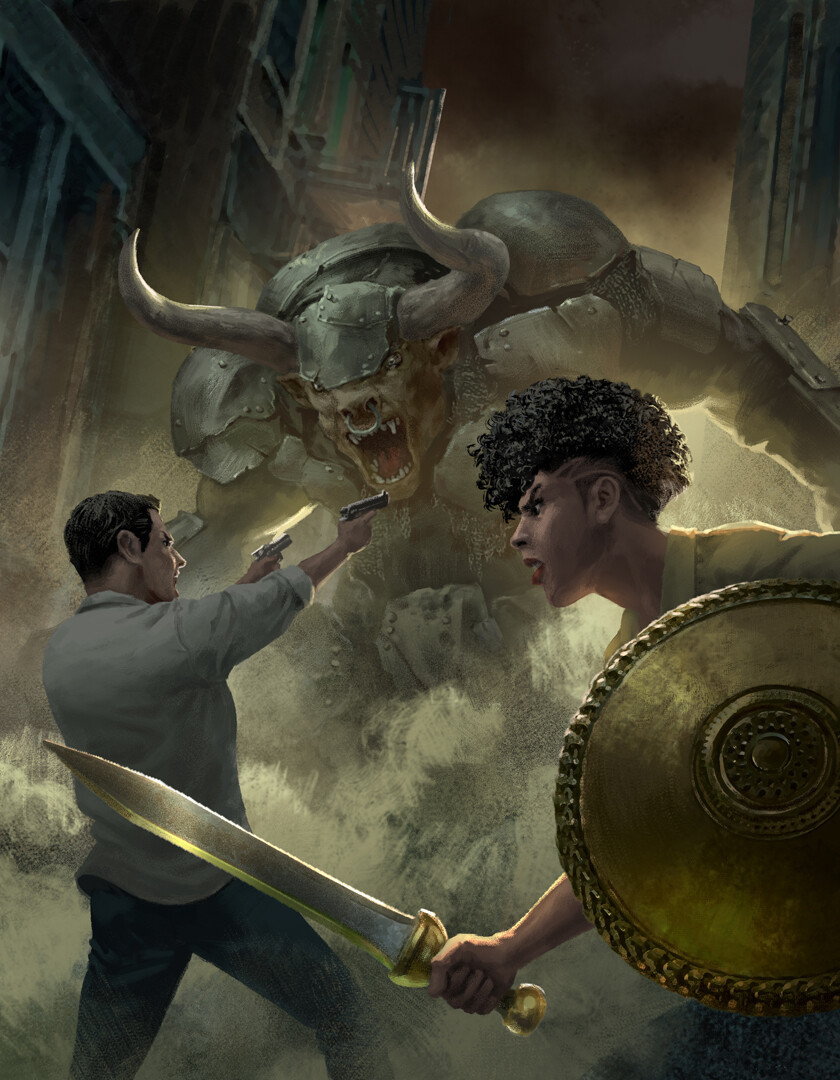
New Creatures
This section includes new creatures for your players to face during their adventures in a modern-themed setting, supplementing those found in the official books.
City Guardian
While treants protects forests, the city guardian protects cities from outside threats. In general, these metallic constructs are asleep, waiting until the call for aid when the city is in danger.
Constructed Nature. A city guardian doesn't require air, food, drink, or sleep.
City Guardian
Large construct, unaligned
- Armor Class 18 (natural armor)
- Hit Points 60 (8d8 + 24)
- Speed 30 ft.
STR DEX CON INT WIS CHA 18 (+4) 13 (+1) 16 (+3) 10 (+0) 10 (+0) 10 (+0)
- Damage Resistances bludgeoning, piercing, and slashing from nonmagical weapons that aren't adamantine
- Damage Immunities force, necrotic, poison
- Condition Immunities blinded, charmed, deafened, frightened, paralyzed, petrified, poisoned, stunned.
- Senses darkvision 60 ft., passive Perception 14
- Languages understands common but can't speak
- Challenge 4 (1,100 XP)
False Appearance. While the city guardian remain motionless, it is indistinguishable from a normal statue.
Magic Resistance. The city guardian has advantage on saving throws against spells and other magical effects.
Regeneration. The city guardian regains 5 hit points at the start of its turn if it has at least 1 hit point.
Actions
Multiattack. The city guardian makes two fist attacks.
Fist. Melee Weapon Attack: +6 to hit, reach 5ft., one target. Hit 13 (2d8 + 4) bludgeoning damage.
Reactions
Arcane Shield. The city guardian adds 2 to its AC against one attack or single target spell that would hit. To do so, the city guardian must see the attacker.
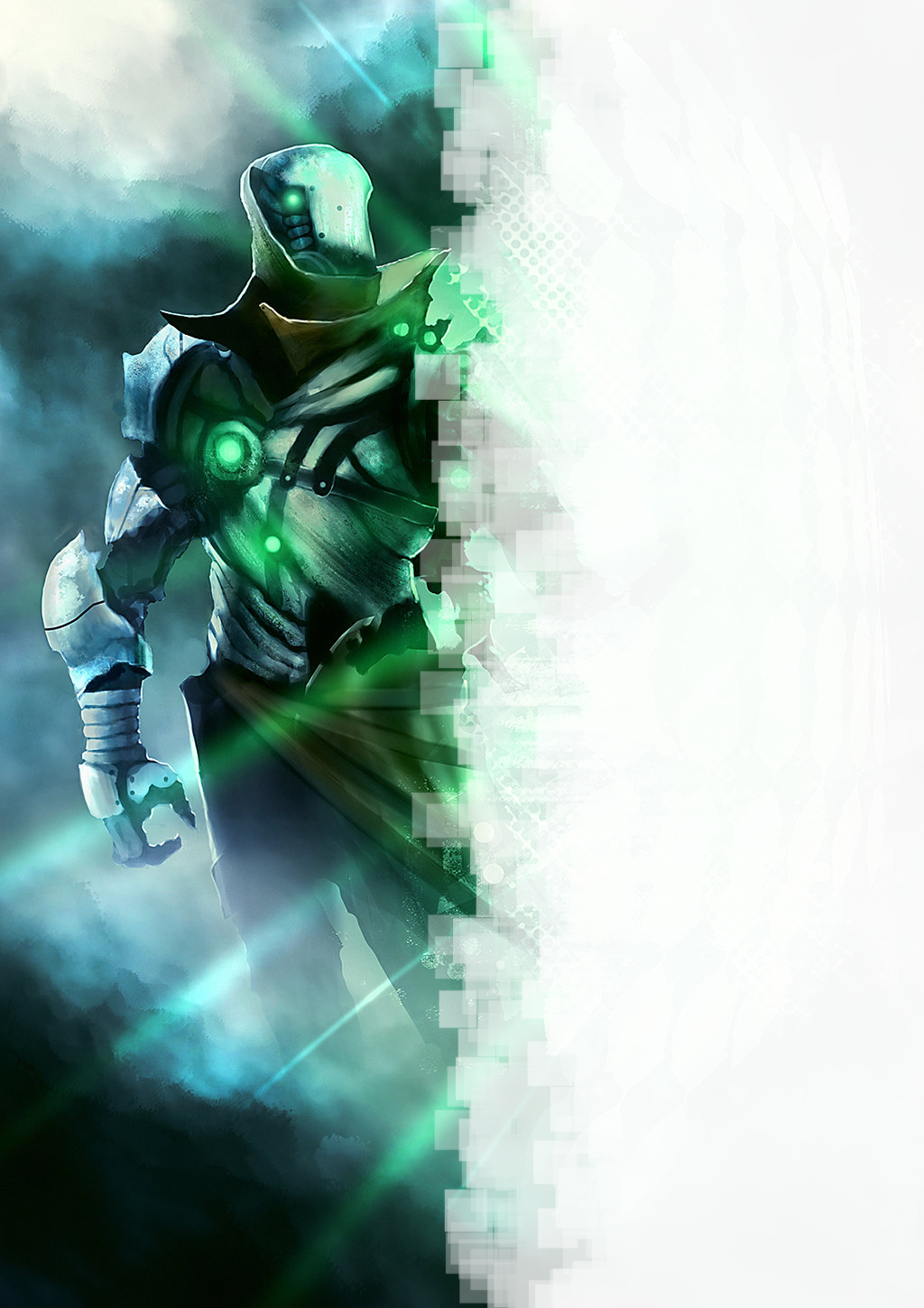
Nonplayer Characters
Driver
Medium humanoid (any race), any alignment
- Armor Class 13 (leather jacket)
- Hit Points 11 (2d8 + 2)
- Speed 30 ft.
STR DEX CON INT WIS CHA 10 (+0) 14 (+2) 12 (+1) 12 (+1) 13 (+1) 10 (+0)
- Skills Perception +3
- Senses passive Perception 13
- Languages any one language (usually Common)
- Challenge 1/8 (25 XP)
Expert Driver. Whenever the driver makes a Dexterity check to accelerate or for doing a maneuver such as dodging an obstacle or resisting a ram, it has a +4 bonus on that roll.
Actions
Pocket Knife. Melee Weapon Attack: +4 to hit, reach 5 ft., one target. Hit 4 (1d4 + 2) piercing damage.
Drivers includes taxi drivers, and other commoners with some expertise driving vehicles and motorcycles.
Hitman
Medium humanoid (any race), any non-good alignment
- Armor Class 16 (undercover vest)
- Hit Points 78 (12d8 + 24)
- Speed 30 ft.
STR DEX CON INT WIS CHA 11 (+0) 16 (+3) 14 (+2) 13 (+1) 11 (+0) 10 (+0)
- Saving Throws Dex +7, Int +5
- Skills Acrobatics +7, Deception +4, Perception +4, Stealth +11
- Damage Reduction Piercing damage from firearms is reduced by 2
- Senses passive Perception 14
- Languages Common and one extra language
- Challenge 8 (3,900 XP)
Assassinate. During its first turn, the hitman has advantage on attack rolls against any creature that hasn't taken a turn. Any hit the hitman scores against a surprised creature is a critical hit.
Evasion. If the hitman is subjected to an effect that allows it to make a Dexterity saving throw to take only half damage, the hitman instead takes no damage if it succeeds on the saving throw, and only half damage if it fails.
Sneak Attack (1/Turn). The hitman deals an extra 13 (4d6) damage when it hits a target with a weapon attack and has advantage on the attack roll, or when the target is within 5 feet of an ally of the hitman that isn't incapacitated and the hitman doesn't have disadvantage on the attack roll.
Actions
Multiattack. The hitman makes three attacks with its suppressed light pistol.
Suppresed Light Pistol. Ranged Weapon Attack: +7 to hit, range 60/180 ft., one target. Hit 9 (2d6 + 3) piercing damage.
Pocket Knife. Melee Weapon Attack: +7 to hit, reach 5 ft., one target. Hit 5 (1d4 + 3) piercing damage, and the target must make a DC 15 Constitution saving throw, taking 24 (7d6) poison damage on a failed save, or half as much damage on a successful one.
A hitman is an assassin-for-hire contracted for killing a target individual or group of people. This agreement is illegal, and in general it involves some form of payment, monetary or otherwise.
Sniper
Medium humanoid (any race), any alignment
- Armor Class 15 (concealable vest)
- Hit Points 75 (10d8 + 30)
- Speed 30 ft.
STR DEX CON INT WIS CHA 11 (+0) 18 (+4) 16 (+3) 11 (+0) 13 (+1) 10 (+0)
- Skills Acrobatics +6, Perception +5
- Damage Reduction Piercing damage from firearms is reduced by 3
- Senses passive Perception 15
- Languages any one language (usually Common)
- Challenge 3 (700 XP)
Sniper's Eye (3/Day). As a bonus action, the sniper can add 1d10 to its next attack or damage roll with a sniper rifle.
Actions
Multiattack. The sniper makes two attacks with its sniper rifle.
Sniper Rifle. Ranged Weapon Attack: +6 to hit, range 180/540 ft., one target. Hit 14 (2d10 + 4) piercing damage.
Light Pistol. Ranged Weapon Attack: +6 to hit, range 60/180 ft., one target. Hit 10 (2d6 + 4) piercing damage.
A sniper is a marksman who operates to maintain close visual contact with the enemy and shoot them from concealed positions or distances exceeding their detection capabilities. They generally have specialized training and use high-precision rifles and optics.
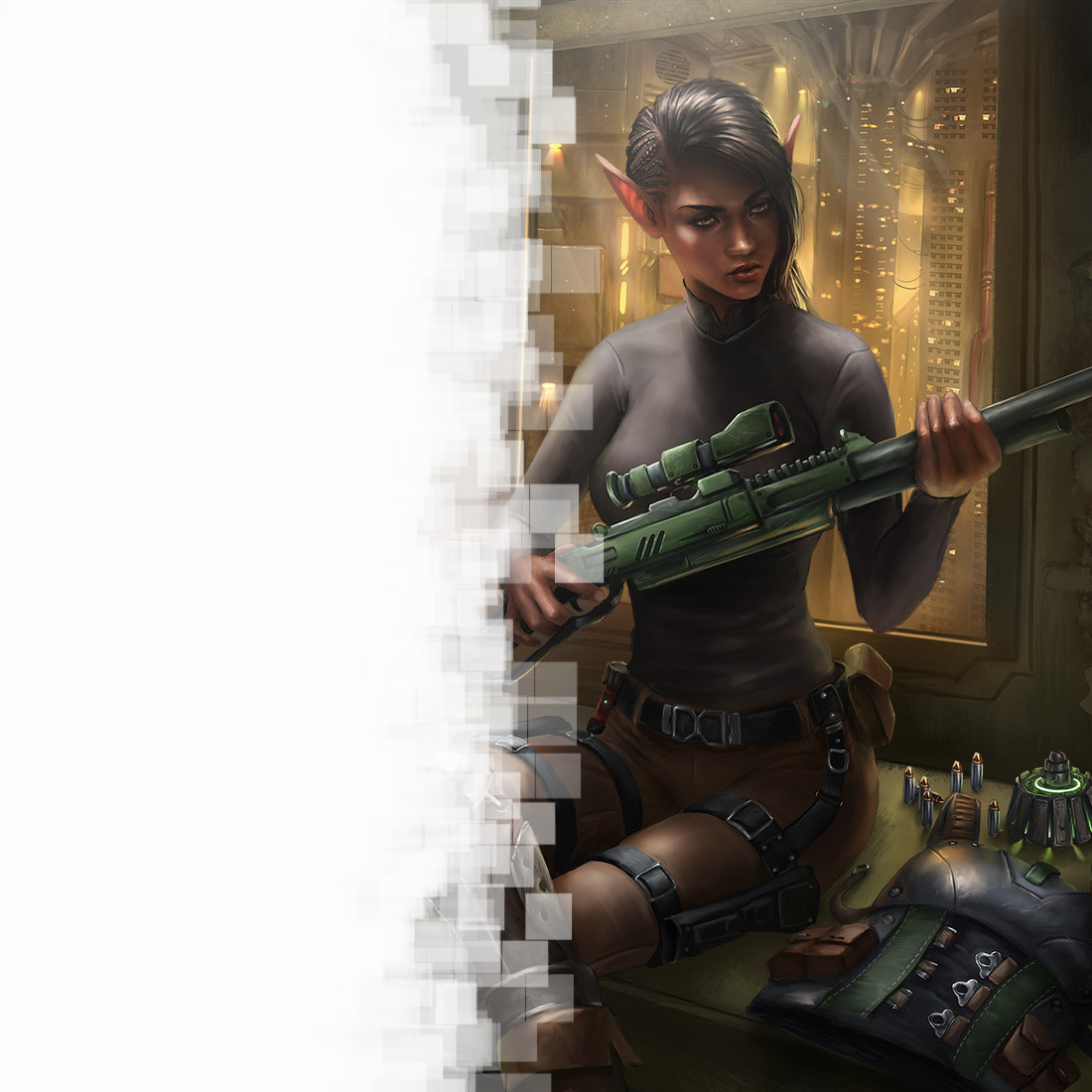
Security Forces
Security Forces is an umbrella term frequently used to describe statutory organizations with military, paramilitary, or internal security mandates.
Police officers are almost always the first on the scene when someone call the police, and when needed, they fight as hard as possible to protect their city.
Police riot control units are the security forces that control, disperse, and arrest people who are involved in a riot, demonstration, or protest, using riot sields and non-lethal weapons.
Police Officer
Medium humanoid (any race), any alignment
- Armor Class 15 (concealable vest)
- Hit Points 16 (3d8 + 3)
- Speed 30 ft.
STR DEX CON INT WIS CHA 11 (+0) 14 (+2) 12 (+1) 11 (+0) 13 (+1) 10 (+0)
- Skills Perception +5, Persuasion +5
- Damage Reduction Piercing damage from firearms is reduced by 3
- Senses passive Perception 15
- Languages any one language (usually Common)
- Challenge 1/2 (100 XP)
Actions
Multiattack. The police officer makes two ranged attacks with its light pistol.
Metal Baton. Melee Weapon Attack: +4 to hit, reach 5 ft., one target. Hit 5 (1d6 + 2) bludgeoning damage.
Light Pistol. Ranged Weapon Attack: +4 to hit, range 60/180 ft., one target. Hit 8 (2d6 + 2) piercing damage.
Police Riot Control Unit (PRCU)
Medium humanoid (any race), any alignment
- Armor Class 18 (light-duty vest, riot shield)
- Hit Points 32 (5d8 + 10)
- Speed 30 ft.
STR DEX CON INT WIS CHA 11 (+0) 15 (+2) 14 (+2) 10 (+0) 10 (+1) 10 (+0)
- Skills Intimidation +5, Persuasion +5
- Damage Reduction Piercing damage from firearms is reduced by 6
- Senses passive Perception 10
- Languages any one language (usually Common)
- Challenge 1 (200 XP)
Pack Tactics. The police riot control unit has advantage on attack roll against a creature if at least one of the PRCU's allies is within 5 feet of the creature and the ally isn't incapacitated.
Actions
Multiattack. The police riot control unit makes two melee attacks.
Metal Baton. Melee Weapon Attack: +4 to hit, reach 5 ft., one target. Hit 5 (1d6 + 2) bludgeoning damage.
Tear Gas Grenade. Ranged Weapon Attack: +4 to hit, range 30/60 ft., one target. One round after the grenade lands, it emits a cloud of tear gas creating a heavily obscured area in a 20-foot radius, and any creature starting its turn in the gas is considered blinded and it must make a Constitution saving throw or be incapacitated (DC 15).
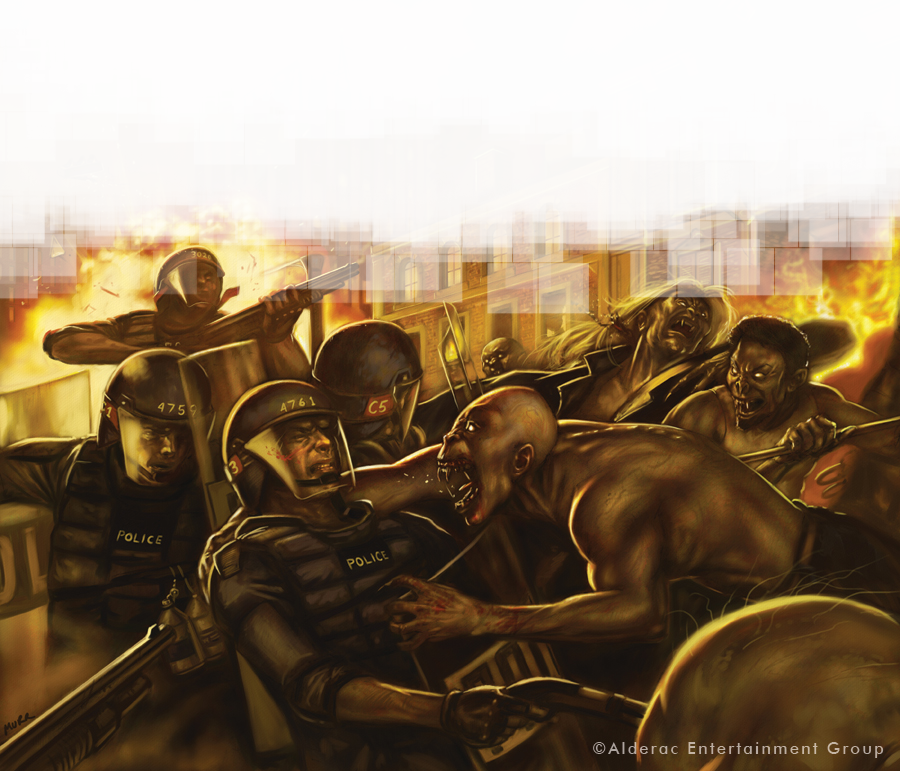
Special Response Units
Light response units (or LRU) are the ones called when the normal police forces can't handle it or when the situation is volatile enough to require specialist weapons and training. They are well-equipped with more armor and firepower.
Heavy response units are the elites within the response unit teams. Each man have served to the special response units for many years, they are highly experienced and well trained, wearing the strongest armor and weaponry.
Heavy Response Unit (HRU)
Medium humanoid (any race), any alignment
- Armor Class 18 (forced entry unit)
- Hit Points 112 (15d8 + 45)
- Speed 30 ft.
STR DEX CON INT WIS CHA 15 (+2) 18 (+4) 16 (+3) 11 (+0) 12 (+1) 15 (+2)
- Saving Throws Str +7, Dex +5, Con +4
- Skills Athletics +5, Intimidation +10
- Damage Resistances Piercing damage from firearms and Slashing damage
- Senses passive Perception 11
- Languages any one language (usually Common)
- Challenge 5 (1,800 XP)
Actions
Multiattack. The heavy response unit makes three ranged attacks.
Tactical Shotgun. Ranged Weapon Attack: +7 to hit, range 30/90 ft., one target. Hit 11 (2d8 + 4) piercing damage.
Flashbang. Ranged Weapon Attack: +5 to hit, range 30/60 ft., one target. Each creature within 20 feet of the flashbang must make a Dexterity saving throw (DC 13) or be blinded and deafened until the end of your next turn.
Light Response Unit (LRU)
Medium humanoid (any race), any alignment
- Armor Class 17 (tactical vest)
- Hit Points 52 (8d8 + 16)
- Speed 30 ft.
STR DEX CON INT WIS CHA 15 (+2) 16 (+3) 14 (+2) 11 (+0) 11 (+0) 11 (+0)
- Saving Throws Con +4, Wis +2
- Skills Perception +5, Persuasion +5
- Damage Resistances Piercing damage from firearms
- Senses passive Perception 10
- Languages any one language (usually Common)
- Challenge 3 (700 XP)
Actions
Multiattack. The light response unit makes two ranged attacks with its submachine gun.
Submachine Gun. Ranged Weapon Attack: +5 to hit, range 80/240 ft., one target. Hit 11 (2d8 + 3) piercing damage.
Flashbang. Ranged Weapon Attack: +5 to hit, range 30/60 ft., one target. Each creature within 20 feet of the flashbang must make a Dexterity saving throw (DC 13) or be blinded and deafened until the end of your next turn.
Special Response Units Weaponry
The response units varies their weapons and equipment depending on the situation they are deployed. In general, you can replace the light response unit weapon to a tactical shotgun or an assault rifle. For the heavy response unit, you can replace the tactical shotgun to an assault rifle or a light machinegun.
You can also add plastic explosives, tear gas grenades and weapon accessories (such as suppressors and XREP shotgun shells) when needed.
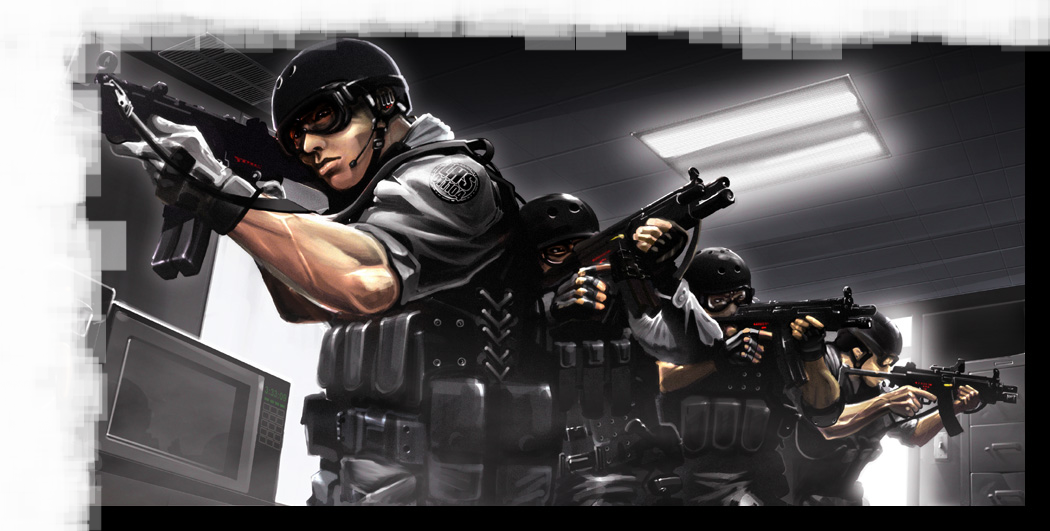
Security Guard
Medium humanoid (any race), any alignment
- Armor Class 15 (concealable vest)
- Hit Points 11 (2d8 + 2)
- Speed 30 ft.
STR DEX CON INT WIS CHA 13 (+1) 14 (+2) 12 (+1) 10 (+0) 11 (+0) 10 (+0)
- Skills Perception +2
- Damage Reduction Piercing damage from firearms is reduced by 3
- Senses passive Perception 12
- Languages any one language (usually Common)
- Challenge 1/8 (25 XP)
Actions
Metal Baton. Melee Weapon Attack: +4 to hit, reach 5 ft., one target. Hit 5 (1d6 + 2) bludgeoning damage.
Taser Gun. Ranged Weapon Attack: +4 to hit, range 15/35 ft., one target. Hit 2 (1d4) lightning damage, and the target must make a DC 15 Constitution saving throw or be paralyzed until the start of the security guard next turn.
Security guards includes every guard in a store, banks, and other public places. In general, they are the first ones who call the police for backup.